
A B C D E F G H I J K L M N O P Q R S T U V W X Y Z
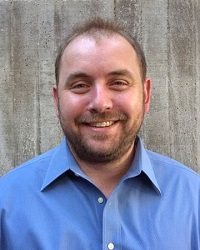
Michael Alberti, MD, PhD, is a fellow in the ABP Physician-Scientist Research Pathway at Washington University in St. Louis. He received his MD and PhD from the University of Alabama at Birmingham (UAB), completing his thesis work in the laboratory of David T. Curiel, MD, PhD studying adenovirus gene therapy targeting approaches in addition to cellular therapy applications. He completed residency training in Clinical Pathology at UCLA, where he was the recipient of an Eli and Edythe Broad Center of Regenerative Medicine and Stem Cell Research at UCLA Clinical Fellowship Award to investigate the role of long noncoding RNAs in early B-cell development in the laboratory of Dinesh S. Rao, MD, PhD. He then moved to Washington University in St. Louis to complete Molecular Genetic Pathology Fellowship training and has subsequently began his postdoctoral research in the laboratory of Matthew J. Walter, MD. His research is focused on studying the molecular regulation of normal and dysregulated hematopoiesis in the context of myelodysplastic syndrome (MDS) and development of secondary acute myeloid leukemia (s-AML).

Deepu Alex, MD, PhD, is a board certified Molecular Genetic Pathologist and currently a Cytopathology fellow at Memorial Sloan Kettering Cancer Center in New York. Prior to this, he has completed fellowships in Molecular Genetic Pathology and Oncologic Surgical Pathology at the same institution. He completed his Pathology residency training from Medstar-Georgetown University Hospital, Washington DC in 2015. He received his Ph.D. training in Microbiology and Immunology at Georgetown University. His thesis work dealt with drug discovery and new treatment strategies for invasive fungal infections. In 2008, he was awarded the Gertrude Maegwyn Davies Scholarship for best graduate research. In 2010, he was appointed one of 15 international advisors for The Lancet Student, a subsidiary of the Lancet journal. His areas of academic and research interest include advances in molecular testing in solid tumors and cytopathology. He has authored case reports, research publications and book chapters with an emphasis on molecular diagnostic methods. He has served as Chief Resident for his residency program and has represented his program as a delegate to international professional societies in Pathology.
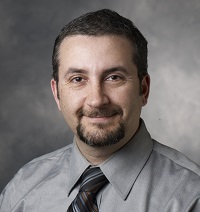
Ash A. Alizadeh, MD, PhD, completed his PhD in Biophysics and MD at Stanford in 2003, under mentorship of Pat Brown (Stanford Biochemistry) and Lou Staudt (NCI/NIH). Supported by the Howard Hughes Medical Institute (HHMI) and NIH Medical Scientist Training Program (MSTP), he built the Lymphochip DNA microarray platform. He and his colleagues used this platform to profile gene expression in diffuse large B cell lymphoma (DLBCL), and many other tumors. This work led to the discovery of DLBCL subtypes, and a framework for their cell of origin. Following his clinical subspecialty Hematology and Medical Oncolgy training at Stanford, he completed his postdoctoral studies with Ron Levy and Irv Weissman. During this time he worked on molecular outcome prediction in DLBCL, developing a statistical framework for identification of small numbers of genes for robust risk stratification and prognosis. Working with Irv Weissman, he identified CD47 expression as an adverse prognostic factor in non-Hodgkin lymphomas, and a therapeutic target of novel monoclonal antibodies that synergize to eradicate tumors. The Alizadeh lab studies genomic biomarkers of tumors, whether detected through biopsy of primary tissues, or non-invasively through monitoring blood using circulating tumor DNA (ctDNA). His group developed Cancer Personalized Profiling by deep Sequencing (CAPP-Seq) as a novel method for ctDNA detection, and developed a novel cell deconvolution framework (CIBERSORT). His group applies such genomic tools for early detection, diagnosis, and monitoring of diverse tumors. In this effort, his group builds and employ tools from functional genomics, computational biology, molecular genetics, and mouse models.
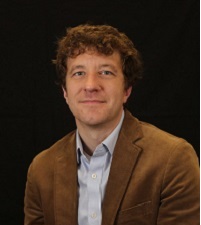
Michael Angelo, MD, PhD, is an assistant professor in the Department of Pathology. Mike received a BS in Physics from the University of Mississippi in 2002 and subsequently enrolled at Duke University, where he received an MD and PhD in Electrical and Computer Engineering in 2010. He trained in clinical pathology at UCSF and completed a postdoctoral research fellowship in the lab of Garry Nolan prior to starting his own lab at Stanford in 2014. He is board certified in clinical pathology and a recipient of the NIH Director’s Early Independence Award. Mike’s main research focus is creating and applying next generation instrumentation and methods for nanometer scale, multiplexed, quantitative imaging of of genes and proteins in clinical tissue biopsies. To this end, his lab has recently developed new instrumentation for multiplexed ion beam imaging (MIBI), which uses secondary ion mass spectrometry to measure antibodies tagged with mass reporters. Highly multiplexed IHC panels for assessing immune cell populations in solid tissue are currently being used in the Angelo lab to study tumor-immune interactions and autoimmunity.
.jpg)
Aaron Atkinson, PhD, is an Instructor in Clinical Genomics and Advanced Technologies at the Geisel School of Medicine at Dartmouth. He earned his bachelor’s in Biology at the University of Utah, and doctorate from Dartmouth College in molecular evolution and protein engineering. His postdoctoral training was with both Dr. Dennis Winge at the University of Utah in the Hematology Division of Internal Medicine concentrating on mitochondrial disorders, and then Dr. Gregory Tsongalis where he began his clinical training in molecular diagnostics and clinical genomics.

Nazneen Aziz, PhD, is the Executive Director of the Kaiser Permanente Research Bank. Nazneen’s interest and expertise is in the implementation of genomics in clinical practice. In her previous roles, Nazneen was the Senior Vice President and Chief Research Officer at Phoenix Children’s Hospital (PCH) where she directed the strategic direction and growth of research at PCH. Before joining PCH, Nazneen was the Director of Molecular Medicine at the College of American Pathologists (CAP). During her tenure at CAP, she led the development of the first set of standards and proficiency tests for clinical laboratories using next-generation sequencing and non-invasive prenatal screening techniques. Nazneen has held executive leadership positions in the biotech/biopharma industry. In her industry career, she focused on personalized medicine, biomarkers, genetic tests, and development of drugs for cancer and diabetes. Prior to joining the biotechnology industry, Nazneen was an Assistant Professor at Harvard Medical School and Boston Children's Hospital where she discovered new genes and their role in polycystic kidney disease. Nazneen received her Ph.D. in molecular genetics and MS in biochemistry at the Massachusetts Institute of Technology (MIT) and her BA (Honors) in Biological Sciences from Wellesley College. She has several issued and pending patents. Her publications have been cited extensively in the medical and scientific literature and she has been invited to speak at numerous national and international conferences. She is on the National Academies Roundtable of Genomics and Precision Medicine, Genomics and Population Health Action Collaborative Population Screening Working Group, the US Government Accountability Office’s expert panel on multiplex technologies for point of care and a member of IGNITE. Nazneen was named by the Arizona Republic as one of 15 People Worth Watching in 2015 and by the Arizona Business Magazine as 2014 Most Influential Women in Arizona Business. Nazneen holds a Research Professorship in the School of Life Sciences at Arizona State University and in the Department of Child Health at University of Arizona College of Medicine.
.jpg)
Elizabeth M. Azzato, MD, PhD, MPH, is an assistant member in the Department of Pathology at St. Jude Children’s Research Hospital. She earned her medical degree through Duke University, her Master of Public Health through the University of North Carolina Chapel Hill and her Ph.D. through a joint partnership between the National Institutes of Health and Cambridge University (UK), where she studied genetic variation and cancer survival. She completed her clinical pathology residency and molecular genetic pathology fellowship training through the Hospital of the University of Pennsylvania and is board certified in Clinical Pathology and Molecular Genetic Pathology. She currently serves as Director of the Molecular Pathology and Clinical Genomics at St. Jude, which focuses on high complexity clinical pediatric oncologic testing, including comprehensive tumor whole-genome, whole-exome and transcriptome testing and cancer predisposition syndrome genetic testing. Her interests include the translation of new technologies and identification of new biomarkers for pediatric oncology testing, by developing and optimizing novel methodologies, protocols and informatics.
Elizabeth Barrie, PhD, is an ABMGG Clinical Laboratory Fellow training in both Clinical Cytogenetics and Clinical Molecular Genetics. She received a BS in Biology from Case Western Reserve University in 2008. Supported by a Distinguished University Fellowship and a Delta Gamma Foundation Fellowship, she completed her PhD in Biomedical Science at the Ohio State University. She identified genetic polymorphisms in the DBH gene (dopamine beta-hydroxylase) demonstrating tissue-specific effects on mRNA and cardiovascular phenotypes. During her post-doctoral work at the OSU Center for Pharmacogenomics, Dr. Barrie analyzed candidate genes and cognitive phenotypes in the context of autism and Parkinson’s disease. Currently at the Institute for Genomic Medicine (IGM) at Nationwide Children’s Hospital, she is involved in analyzing clinical cases, teaching and research.
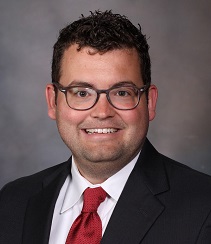
Patrick Blackburn, PhD, is a Clinical Laboratory Genetics and Genomics Fellow in the Department of Laboratory Medicine and Pathology at the Mayo Clinic. He received his Ph.D. in Clinical and Translational Sciences from the Mayo Graduate School in 2015. Dr. Blackburn's graduate work focused on developing new tools and strategies for genome engineering to speed rare disease research and to study the functional consequences of variants of unknown significance in families with suspected genetic disorders. He is particularly interested in using TALENs and CRISPR-Cas systems in model organisms and human cell lines to create patient specific models of disease. Dr. Blackburn was a postdoctoral fellow in the Mayo Clinic Center for Individualized Medicine and part of the Investigative and Functional Genomics Program within the clinical diagnostic odyssey service line. During his postdoctoral work, Dr. Blackburn was involved in whole exome sequencing analysis and the application of –omics profiling and advanced analytics in unsolved cases. In 2017, Dr. Blackburn became a Clinical Laboratory Genetics and Genomics Fellow and is receiving training in clinical molecular genetics and cytogenetics. He has interest in next generation sequencing technologies and their application in both the constitutional genetic and oncology settings.
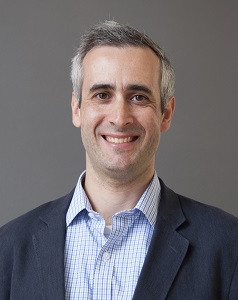
Jesse S. Boehm, PhD, is an Institute Scientist at the Broad Institute and the Associate Director of the Broad’s Cancer Program. He is the director of the institute’s Cancer Cell Line Factory (CCLF) initiative, and a principal investigator in the Broad’s Cancer Model Development Center (as part of the International Human Cancer Models Initiative). In these roles, he works closely with Cancer Program director Todd Golub in the scientific planning and strategic execution of program projects, collaborations, and activities, with particular focus on senior strategic leadership of the Broad’s Dependency Map initiative, together with Golub and William Hahn. Boehm also leads a research laboratory focused on developing methods and tools to accelerate the translation of cancer genomics into cancer therapeutics. Active projects include developing pipelines for personalized testing of tumor vulnerabilities and assessing the tumorigenic potential and functional impact of new cancer mutations. The research group has an ultimate goal of making “precision functional genomics” a reality. Over the last decade, Boehm has helped create and deploy large-scale functional genomics tools for the community, aiming to determine the function of elements in the cancer genome. Boehm received his B.S. in biology from MIT and his Ph.D. from Harvard University, Division of Medical Sciences.

Robert A. Bonomo, MD, is the Professor of Medicine in the Molecular Biology and Microbiology department at Case Western Reserve University. He also serves as Chief of Medical Service at the Louis Stokes Cleveland Department of Veteran Affairs Medical Center and Vice Chair for Veteran Affairs, Department of Medicine, for the University Hospitals Cleveland Medical Center. Dr. Bonomo received his Medical Degree at Case Western Reserve University and continued on to complete his Residency and Fellowship at the University Hospitals of Cleveland. The primary focus of his laboratory is to understand the genetic and amino acid sequence determinants of the enzymes that inactivate ß-lactams, the ß-lactamases.
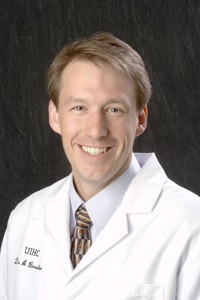
Aaron D. Bossler, MD, PhD, is a clinical professor in Pathology at the University of Iowa. He directs the molecular pathology laboratory and the molecular genetic pathology fellowship program with 12 years of experience in molecular genetic pathology. His research interest is in understanding the molecular mechanisms of cancer and using the genetic information to develop rational clinical assays. His laboratory has developed multiple next generation sequencing assays for cancer mutation profiling using the Ion Torrent and Illumina platforms and has considerable experience with optimizing specimen preparation for enhancing sensitivity for mutation detection from tissue or blood specimens. He has a longstanding research interest on the role of HPV infection in the development of squamous cell carcinoma. He currently serves as vice-chair for new codes on the AMP Economic Affairs Committee, as the AMP representative to the Pathology Coding Caucus (PCC), as a member of both AMP and College of American Pathologists economic affairs committees, as a member of the American Medical Association Molecular Pathology Advisory Group (MPAG) and the Proprietary Laboratory Assay Technical Advisory Group (PLATAG). He is a member of the editorial board for The Journal of Molecular Diagnostics.

Noah A. Brown, MD, received a B.S. in Biological Sciences from Stanford University and an M.D. from the University of Michigan School of Medicine. He completed residency training in Anatomic and Clinical Pathology at the University of Michigan Health System. He also completed fellowship training in Hematopathology and in Molecular Genetic Pathology at the University of Michigan. He joined the faculty at the University of Michigan, Department of Pathology in 2014 as the Associate Medical Director. He is now an Assistant Professor of Pathology, Director of the University of Michigan Molecular Diagnostics Laboratory as well as Director of the Molecular Genetic Pathology Fellowship. His research interests include emerging molecular diagnostic technology and investigation of novel molecular alterations in hematolymphoid and head and neck neoplasms. He serves on editorial boards of Human Pathology and Head and Neck Pathology. Recent awards include the Association for Molecular Pathology Young Investigator Award.
Joseph A. Califano, MD, is a board-certified otolaryngologist. He is an internationally recognized head and neck surgeon who specializes in tumors of the oral cavity (mouth), salivary glands, pharynx (throat), larynx (voice box), sinuses, thyroid, and skull base. Dr. Califano has expertise in minimally invasive surgical techniques, including endoscopic laser and robotic surgery, to help best preserve function and appearance in his patients. He has an interest in HPV-related cancers of the throat, as well as premalignant conditions of the upper aero digestive tract. His other areas of investigation include integrative network-based molecular analysis of head and neck tumors; detection of recurrent and occult primary cancer within blood and saliva using molecular biologic techniques; and defining the underlying biology of head and neck cancers. A frequent speaker at national and international meetings, Dr. Califano has coauthored numerous textbooks and book chapters and over 230 peer-reviewed articles related to both clinical and scientific aspects of cancer. His work has appeared in Nature, Oral Oncology and Clinical Cancer Research, among others. He reviews and serves on the editorial board for a variety of medical journals, including Oral Oncology, the most respected specialty journal in head and neck cancer. In his free time, Dr. Califano enjoys rock climbing, and is learning how to surf. He and his wife, Beth, have two children.
.png)
Alexis B. Carter, MD, FCAP, FASCP, is the Director of Pathology Informatics for Children's Healthcare of Atlanta. She is the first chair of the new Informatics Subdivision in the Association of Molecular Pathology and also serves as a member of the AMP Governing Board, as the Test Directory Editor and as a member of the Publications Committee. She is a past-president of the Association of Pathology Informatics and is a member of the Informatics Committee and Clinical Informatics Steering Committee of the College of American Pathologists. She is the immediate past-chair of the International Pathology and Laboratory Medicine Special Interest Group (IPaLM SIG) of SNOMED CT International which is the governing body for SNOMED CT Terminology. She is the secretary for the working group on two-dimensional barcoding for the Clinical and Laboratory Standards Institute, is a section editor for informatics for Archives of Pathology and Laboratory Medicine and is on the editorial board of the Journal of Pathology Informatics. She is board-certified in Anatomic Pathology, Clinical Pathology, Molecular Genetic Pathology and Clinical Informatics, and her clinical practice is in both clinical informatics and molecular genetic pathology.
.png)
Scott L. Carter, PhD, is an Assistant Professor in the Department of Biostatistics and Computational Biology, Dana-Farber Cancer Institute at the Harvard Chan School of Public Health. He is also an Associate Member at the Broad Institute. He works closely with Boston area physicians to design and execute studies of cancer initiation, drug resistance, and metastasis using genomics technology applied to cancer-tissue specimens collected at various stages of disease progression. Dr. Carter has developed several novel computational methods in order to analyze these datasets and make inferences about clonal evolution underlying cancer progression. He has also developed software tools that are significantly increasing the impact of his work by making those methods available to the broader research community. These tools include HAPSEG, ABSOLUTE, CapSeg, Allelic CapSeg, and Phylogic.
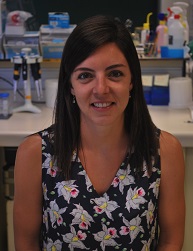
Maria Casadellà, PhD, obtained a degree in Biology from the University of Barcelona (UB) in 2010, which she followed up with an MSc in Biomedical Research awarded by Barcelona’s Pompeu Fabra University (UPF) in 2011. While still a master’s student she joined IrsiCaixa and, in her first year there, completed a second MSc in AIDS Pathogenesis and Treatment, awarded by the Autonomous University of Barcelona (UAB) in 2012. On 2016, she obtained her PhD in Molecular Biology and Biomedicine from Autonomous University of Barcelona, in the area of HIV drug resistance mutations and viral tropism analysed by next-generation sequencing techniques. She is currently continuing her research in HIV resistance epidemiology.

Larisa H. Cavallari, PharmD, is an Associate Professor in the Department of Pharmacotherapy and Translational Research and Director of Center for Pharmacogenomics at the University of Florida. She is also an Associate Director of University of Florida Health Personalized Medicine Program. Her research involves discovery of genetic associations with drug response and their translation into clinical practice, especially in underrepresented populations. Her research is currently funded by the NIH, FDA, and Canon Biomedical.
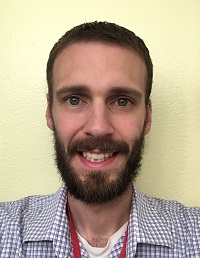
Jeffrey Chumley, MSc, MLS(ASCP)CM, is a Medical Technologist Specialist in the Infectious Disease Division of ARUP Laboratories. He received a MS in Laboratory Medicine from the University of Utah with his thesis on the molecular detection of Tropheryma whipplei. His background is in molecular biology research focusing on HIV latency and HIV accessory proteins. His professional interests include clinical applications of digital PCR, medical laboratory science education, and the development and implementation of laboratory developed procedures.
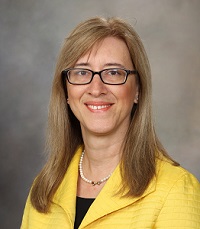
Mine S. Cicek, PhD, received her Ph.D. in Genetics from Virginia Tech, Blacksburg, VA in 2001. Following a Postdoctoral Research Fellowship at the Cleveland Clinic, Lerner Research Institute, she came to Mayo Clinic, Rochester, Minnesota in 2005 as a R25 Cancer Genetic Molecular Epidemiology Fellow. After completion of her training, she then worked in the capacity as a Research Associate in the Division of Experimental Pathology and Laboratory Medicine from 2006-2010, then the Division of Epidemiology, Department of Health Sciences Research from 2010-2013. She is trained as a lab-based researcher in the cancer genetic epidemiology field and has worked on multiple tumor types. She has led and published multiple studies with similar research goals on prostate, colon and ovarian cancer genetics. In 2013, she accepted the position as the Laboratory Director of the Biospecimens Accessioning and Processing (BAP) core laboratory, Biorepository Program, and Center for Individualized Medicine at Mayo Clinic in Rochester, Minnesota. Dr. Cicek presently is an Assistant Professor of Laboratory Medicine and Pathology in the Mayo Clinic College of Medicine and is a Senior Associate Consultant at the Mayo Clinic, Rochester, Minnesota. Her main focus is to contribute her expertise in research studies and clinical trials overseeing biospecimen collections, processing and storage. Dr. Cicek continuously tries to bring new knowledge and technology to her lab to improve on quality and best practices for biospecimens usage in biobanking. She is Mayo Clinic PI of The Alliance NCTN Biorepository and Biospecimen Resource. She is Co-PI of the Precision Medicine Initiative (PMI) All of Us (AoU) Research Program Biobank.
.jpg)
Robert M. Cook-Deegan, is a professor in the School for the Future of Innovation in Society, and Consortium for Science, Policy & Outcomes at Arizona State University. He founded and directed Duke’s Center for Genome Ethics, Law & Policy 2002-2012, and Duke-in-Washington through June 2016. Before Duke: National Academies of Science, Engineering and Medicine 1991-2002; National Center for Human Genome Research (NIH) 1989-1990; and congressional Office of Technology Assessment 1982-1988. MD, University of Colorado,1979; and BA in chemistry (magna cum laude), Harvard, 1975. Author of The Gene Wars: Science, Politics, and the Human Genome and over 250 other publications.
Marija Debeljak, BSc, is a molecular diagnostics technologist at Johns Hopkins University School of Medicine. She received her BS from Millersville University of Pennsylvania. She joined Johns Hopkins University’s School of Medicine in 2010 to work in the laboratory of Dr. James Eshleman. She unboxed and set up the -then- just released Ion Torrent PGM Next Generation Sequencer, implementing and optimizing protocols. She developed an assay that permits ultrasensitive detection of human DNA mixes, and in collaboration with Drs. Wheelan and Pevsner, identified 4,349 loci in the human genome that could be used for this purpose (Debeljak et al, JMD, 16: 495-503, 2014). Marija then applied this tool for early detection of leukemic relapse and was able to define a baseline level of host DNA in bone marrow of patients successfully transplanted. She was able to demonstrate, in a proof-of-principle study, that she could detect patients who subsequently relapsed earlier than the standard of care microsatellite/STR based assay (Debeljak et al, JMD, 19: 427-436, 2017). As the primary researcher on this project, she designed the primers, optimized the reactions, and developed the bioinformatic pipeline for analysis. Developing this technology has led to multiple collaborations with other investigators.

Maria G. Dominguez-Bello, PhD, BSc, MSc, is a microbiologist researching the microbiome functions and impacts. She received her undergraduate degree in 1983 from Simon Bolivar University in Venezuela, her Masters in 1987 and her PhD in 1990 (Microbiology) from University of Aberdeen, Scotland. She was an EU Marie Curie Postdoctoral fellow in the UK and in France. She was a professor at the Venezuelan Institute of Scientific Research (IVIC) until 2002, was a Professor at University of Puerto Rico for 11 years, and is now an Associate Professor of Medicine at NYU. She is a fellow of the American Academy of Microbiology (AAM), and of the Infectious Disease Society of America (IDSA). She has served as a Board member of several scientific journals, including Microbial Ecology, Frontiers in Microbiology, Microbes and Infection, mBio and Scientific Reports. Her lab integrates data from genomics/metagenomics, microbiology, ecology, physiology and anthropology to address broad questions about microbe-hosts interaction, including development of the infant microbiota, the impacts exerted by Western lifestyle and restoration.
.jpg)
Todd E. Druley, MD, PhD, is a board-certified pediatric hematologist/oncologist and Assistant Professor of Pediatrics, Developmental Biology and Genetics at Washington University School of Medicine. He obtained a Bachelor’s in Cell and Structural Biology and a minor in Chemistry from the University of Illinois in 1994. He then completed the MD/PhD program at the University of Illinois where he studied mechanisms of chemotherapy resistance. In 2002, Dr. Druley joined Washington University as a pediatric resident and has remained; completing his fellowship in Pediatric Hematology and Oncology and joining the faculty in 2008. He is a member of the Children’s Oncology Group (COG) Myeloid Disease Committee and Epidemiology Committee. Research in the Druley Lab is based on characterizing the link between abnormal human development and early childhood cancer, particularly infant leukemia. The lab has a track record for genomic methodology development and is currently applying that technology to improve molecular diagnostics in pediatric AML. Clinically, Dr. Druley is focused on pediatric cancer predisposition and serves as the co-director of the Pediatric Cancer Predisposition Program at St. Louis Children’s Hospital.
Oliver Elemento, PhD, is currently an Associate Professor, Acting Director of Englander Institute for Precision Medicine, Associate Director of the Institute for Computational Medicine, Director of the Laboratory of Cancer Systems Biology and Co-Leader of the Genetics, Epigenetics and Systems Biology Program in the Meyer Cancer Center at Weill Cornell Medicine. His group combines Big Data with experimentation and genomic profiling to accelerate the discovery of cancer cures and has published over 150 scientific papers in the area of genomics and drug discovery. Dr. Elemento oversaw the development of assays and analytic pipelines for clinical sequencing at Weill Cornell’s Institute for Precision Medicine. He and his group developed computational methods for assessing the immune landscape of tumors, predicting which cancer patients will respond to immunotherapy using the Immuno-score, an integrative score that combines neoepitope discovery, immune gene expression and T cell receptor usage. His group routinely uses single cell genomics to analyze and link tumor and microenvironment heterogeneity to clinical outcomes. Dr. Elemento is also Co-Assistant Dean for Scientific Computing at Weill Cornell and the recipient of several awards including the NSF CAREER Award, the Hirschl Trust Career Scientist Award and the Walter B Wriston Award. He is the co-founder of two startup companies, OneThree Biotech (Artificial Intelligence-guided drug discovery) and ThucyDX (genomic profiling for immunotherapy patient selection) and on the Scientific Advisory Board of several genomics companies.
Marni J. Falk, MD, is an Associate Professor in the Division of Human Genetics within the Department of Pediatrics at The Children's Hospital of Philadelphia (CHOP) and University of Pennsylvania Perelman School of Medicine. She received her B.S. degree in Biology graduating Summa cum Laude and Phi Beta Kappa, and M.D. degree in the Alpha Omega Alpha Medical Honor Society in a combined 7-year program at the George Washington University School of Medicine, after which she completed a 5-year Pediatrics and Clinical Genetics dual residency program at Case Western Reserve University. Dr. Falk directs the CHOP Mitochondrial Medicine Center to evaluate and manage individuals of all ages with suspected mitochondrial disease, and leads a translational research group that investigates the causes and global metabolic consequences of mitochondrial disease, and targeted therapies, in C. elegans, zebrafish, mouse, and human cell models of respiratory chain dysfunction, with increasing transition to clinical treatment trials in mitochondrial disease human subjects. She leads the global Mitochondrial Disease Sequence Data Resource (MSeqDR) consortium aimed at improving diagnostic approaches and genomics resources for mitochondrial disease. She also directs the CHOP/UPENN Mitochondria Research Affinity Group. Dr. Falk has authored over 85 publications in human genetics and mitochondrial disease.
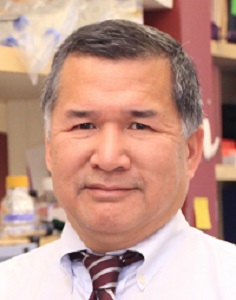
Ferric C. Fang, MD, is an infectious diseases specialist and medical microbiologist with thirty years’ experience as a clinician, educator and researcher. He obtained his undergraduate and medical training at Harvard University and his residency and fellowship training at UCSD. He is currently a Professor of Laboratory Medicine, Microbiology and Medicine at the University of Washington School of Medicine and the Director of Clinical Microbiology at Harborview Medical Center. He is also Deputy Editor of Clinical Infectious Diseases, past Editor-in-Chief of Infection and Immunity, and an elected fellow of the American Association for the Advancement of Science, the Association of American Physicians, the American Academy of Microbiology and the American Society of Clinical Investigation.

Andrew P. Feinberg, MD, MPH, studied mathematics and humanities at Yale in the Directed Studies program, and he received his B.A. (1973) and M.D. (1976) from the accelerated medical program at Johns Hopkins University, as well as an M.P.H. from Johns Hopkins (1981). As a postdoctoral fellow with Sam Barondes at UCSD, he identified epigenetic memory of cell fate in Dictyostelium, which was followed by clinical training in medicine at University of Pennsylvania and medical genetics with Victor McKusick at Johns Hopkins, and was a fellow and Assistant Professor with Bert Vogelstein from 1983-1986, where he developed the random priming method which is ranked in the top 100 papers of all time in citations. He was a Howard Hughes investigator at University of Michigan from 1986-1994, when he returned to Johns Hopkins as King Fahd Professor of Medicine, Molecular Biology & Genetics, and Oncology. He holds an Adjunct Professorship at the Karolinska Institute in Sweden and is a Presidential Scholar at Harvard’s Dana Farber Cancer Institute. Dr. Feinberg is Director of the Center for Epigenetics in the Institute for Basic Biomedical Sciences at Johns Hopkins.
Dr. Feinberg made the first discoveries of altered DNA methylation in human cancer, he discovered human imprinted genes and loss of imprinting (LOI) in cancer, and he proved the epigenetic hypothesis of cancer through his work on Beckwith-Wiedemann syndrome. He also identified the first common variant (genetic or epigenetic) for cancer risk, LOI of IGF2 in colorectal cancer. His discovery of epigenetically altered progenitor cells has led to a paradigm shift in our understanding of carcinogenesis. Most recently, he pioneered genome-scale epigenetics (epigenomics), with the first NIH funded Epigenome Center, pioneering methods including the first comprehensive genome-scale methylation discovering the major target for epigenetic variation in humans, CpG island shores. He led the first whole genome bisulfite sequencing analysis of human cancer, discovering large hypomethylated blocks that correspond to nuclear lamina-associated heterochromatin, as well as a mechanism for disruption of these blocks in epithelial-mesenchymal transition. His protean interests include developing the field of epigenetic epidemiology, first focusing on autoimmune disease, discovering the first example of epigenetic mediation of genetic variants in disease. His NIH Director’s Pioneer Award followed from his idea in 2009 that genetic variants, in evolution or in cancer, could lead to increased epigenetic plasticity, enhancing survival in a changing environment. Direct evidence for this idea comes from his studies of metastasis driven by stochastic epigenetic change rather than metastasis-specific mutations.
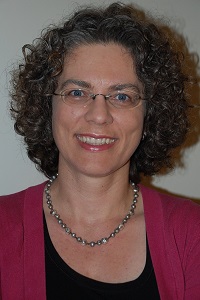
Birgit Funke, PhD, received her Ph.D. in molecular genetics from the University of Würzburg, Germany and trained as a postdoctoral fellow at the Albert Einstein College of Medicine in New York where she identified the gene for 22q11 deletion syndrome. She subsequently completed a fellowship in Clinical Molecular Genetics at Harvard Medical School and has dedicated her career to personalized genetic medicine since then. She served as the director of Clinical Research and Development at the Laboratory for Molecular Medicine (LMM) and was among the first worldwide to implement clinical next generation sequencing (NGS). She also has a extensive experience in clinical diagnostic testing for inherited cardiovascular disorders and is co-chairing the cardiovascular domain working group of the Clinical Genome Resource (ClinGen) whose mission is to harmonize and centralize knowledge resources for genomic medicine. Today, Dr. Funke is Vice President of Clinical Affairs at Veritas Genetics and Part time Associate Professor of Pathology at Harvard Medical School. Her long term goal is to use genomic testing for disease prevention.
Michelle Grant, DO, is an Associate Pathologist in the Department of Pathology at Geisinger Medical Center. She received her DO from the Philadelphia College of Osteopathic Medicine and completed her Anatomic and Clinical Pathology residency at Temple University Hospital in Philadelphia, Pennsylvania. She subsequently completed two fellowships in Transfusion Medicine at Thomas Jefferson University Hospital, Philadelphia, and in Hematopathology at University of Vermont Medical Center, Burlington, Vermont. While at the University of Vermont Medical Center, she trained in the Genomic Medicine Program in the Department of Pathology and Laboratory Medicine. She had a leadership role in the transdisciplinary development of a targeted genomic panel for hematologic malignancies.In her current role, she practices hematopathology and transfusion medicine and she has professional interest in the clinical utility and implementation science of Genomic Medicine.

Alex Greninger, MD, PhD, is a third year resident in laboratory medicine at the University of Washington Medical Center. He received a BS and MS in Biological Sciences and a BA in International Relations from Stanford University, a MPhil in Epidemiology at Cambridge University, and a MD/PhD from the University of California San Francisco. He is interested in genomics of infectious diseases and metagenomics, especially expanding reference genome databases through first genomes of bugs and viral discovery.

Obi L. Griffith, PhD, is Assistant Professor of Medicine and Assistant Director at the McDonnell Genome Institute at Washington University School of Medicine. Dr. Griffith completed bioinformatics post-doctoral fellowships at Lawrence Berkeley National Laboratory in Berkeley, California and at the BC Cancer Agency Genome Sciences Centre in Vancouver, Canada. He received his Ph.D. (Medical Genetics, 2008) from the University of British Columbia and B.S. (Biochemistry and Biology with Honors, 2002) from the University of Winnipeg. He is supported by an NCI Transition Career Development Award (K22) and NCI Early-Stage Development of Informatics Technologies for Cancer Research and Management (U01). He has received numerous other awards from Atomic Energy of Canada Ltd., Natural Sciences and Engineering Research Council, University of Winnipeg, University of British Columbia, Canadian Institutes of Health Research (CIHR), British Columbia Cancer Agency and Michael Smith Foundation for Health Research. He is a regular instructor of bioinformatics workshops for Cold Spring Harbor Laboratories and the Canadian Bioinformatics Workshops series. Dr. Griffith's research is focused on precision medicine approaches for cancer using genomic technologies. He develops and uses bioinformatics and statistical methods for the analysis of high throughput sequence data and identification of biomarkers for diagnostic, prognostic and drug response prediction.
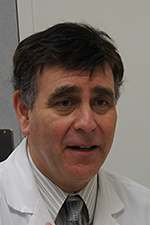
Wayne W. Grody, MD, PhD, is a Professor in the Departments of Pathology & Laboratory Medicine, Pediatrics, and Human Genetics at the UCLA School of Medicine. He is the director of the Molecular Diagnostic Molecular Laboratories and the Clinical Genomics Center within the UCLA Medical Center. He is also an attending physician in the Department of Pediatrics, specializing in the care of patients with or at risk for genetic disorders. He has been one of the primary developers of quality assurance and ethical guidelines for DNA-based genetic testing for a number of governmental and professional agencies including the FDA, VA, AMA, CAP, ACMG, ASHG, NCCLS, CDC, NIH-DOE Human Genome Project (ELSI program), and PSRGN. He served as a member of the NIH-DOE Task Force on Genetic Testing, and was the working group chair for development of national guidelines for cystic fibrosis and factor V-Leiden mutation screening. More recently, he served as founding chair of an Advisory Committee on Genomic Medicine for the entire VA healthcare system and as president of the American College of Medical Genetics. He did his undergraduate work at Johns Hopkins University, received his M.D. and Ph.D. at Baylor College of Medicine, and completed residency and fellowship training at UCLA. He is double board-certified by the American Board of Pathology (Anatomic and Clinical Pathology, Molecular Genetic Pathology) and the American Board of Medical Genetics (Clinical Genetics, Molecular Genetics, and Biochemical Genetics).
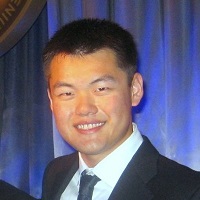
Wei Gu, MD, PhD, is a board-certified pathologist and Molecular Genetic Pathology Fellow at UCSF. His research focuses on minimally invasive diagnostics using cell-free DNA/RNA with an emphasis on infectious disease, oncology, and prenatal diagnostics. He received his Bioengineering MD/PhD from Stanford University and worked on Non-Invasive Prenatal Diagnostics (NIPD) with Dr. Stephen Quake. Dr. Gu completed his clinical pathology residency at UCSF and is a post-doctoral scholar in Dr. Joseph DeRisi’s laboratory. As a clinical fellow, he works with Dr. Steve Miller and Dr. Charles Chiu in the UCSF Clinical Microbiology Laboratory. He has co-developed and co-patented several technologies for molecular diagnostics, including a microfluidics platform as an undergraduate student, NIPD as a graduate student, and Depletion of Abundant Sequences by Hybridization (DASH) using CRISPR nucleases during residency.
Kimberly Hanson, MD, MHS, is the Head of Immunocompromised Host Infectious Diseases Services at the University Hospital and Huntsman Cancer Center as well as Director of Clinical Microbiology within ARUP Laboratories. She is an Associate Professor of Medicine and Pathology, splitting her time between patient care, laboratory administration, research and teaching. Dr. Hanson was recruited to the University of Utah in 2008 from Duke University, where she obtained specialty training in Adult Infectious Diseases, Medical Microbiology and Health Sciences Research. She maintains an active research program that is focused on the development and validation of novel, cost-effective diagnostic tests for Infectious Diseases. Dr. Hanson has authored over 60 scientific papers, book chapters and review articles with a focus on transplant-related infectious diseases and clinical diagnostics. As the Medical Microbiology Fellowship Program Director, she is also actively involved in the training of medical students, residents and fellows within the University’s School of Medicine.

Marian H. Harris, MD, PhD, is the Director of the Laboratory for Molecular Pediatric Pathology (LaMPP) at Boston Children’s Hospital where she is a practicing hematopathologist and molecular pathologist. She received her MD and PhD from the University of Pennsylvania, completed her residency in AP and fellowship in Hematopathology at Brigham and Women’s Hospital, and completed her fellowship in Molecular Genetic Pathology at Harvard Medical School. Dr. Harris’s clinical and translational research focuses on molecular diagnostics in the context of pediatric malignancy and hematologic disease. She is particularly interested in using molecular diagnostics to refine pathologic diagnoses, as well as to provide prognostic and therapeutic guidance in clinical care, and is a co-investigator on a number of multi-institutional clinical trials using molecular diagnostics for these purposes.

Andrew Hilmer, PhD, is a Senior Account Manager at Applied StemCell, where he works directly with key accounts to develop technical strategies for advancing their research programs. At Applied StemCell, Dr. Hilmer has also served as Product Manager for the ONCOREF™ series of isogenic cell lines, which consists of over 150 off-the-shelf cell lines that have been engineered to possess diverse oncogenic mutations using the CRISPR/Cas9 platform. Prior to joining Applied StemCell, Andrew was an NIH Postdoctoral Fellow at Stanford University, and he completed his Ph.D. training in Chemical Engineering at MIT. He has authored or co-authored more than 20 scientific manuscripts, and is listed as an inventor on three granted or pending patents.
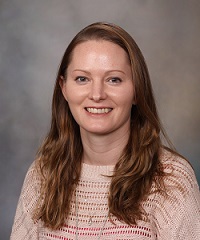
Nicole L. Hoppman, PhD, is an Assistant Professor of Laboratory Medicine and Pathology and a Co-Director of both the Clinical Genomics and Clinical Genome Sequencing Laboratories at Mayo Clinic. She earned her BS in Biology from the University of Illinois at Urbana-Champaign and her PhD in Human Genetics from the University of Maryland School of Medicine. Dr. Hoppman then completed fellowships, and is board certified by the American Board of Medical Genetics and Genomics, in both Clinical Molecular Genetics and Clinical Cytogenetics. Her main area of interest and expertise is in the application of molecular technologies to answer classical cytogenetics questions. Dr. Hoppman recently helped launched the world’s first ever clinical Mate-Pair sequencing assay for the detection and characterization of balanced chromosome rearrangements in both constitutional and oncology specimens.

Jessica A. Houskeeper, MRes, is a Senior Laboratory Specialist in the Pathology Department at the University of Utah. Jessica received a BS in Biology from Brigham Young University in 2012. She then went on to earn a Masters of Research in Biomedical Sciences from the University of Glasgow in Scotland and specialized in Cellular Engineering. As a member of the Carl Wittwer Lab, her current research is focused on extreme-speed diagnostics where detection of viral RNA by real-time PCR occurs in two minutes or less.
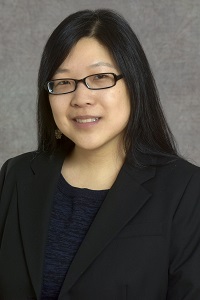
Susan J. Hsiao, MD, PhD, is an Assistant Professor in the Department of Pathology and Cell Biology at Columbia University Medical Center. She serves as Director of Bioinformatics in the Laboratory of Personalized Genomic Medicine. Her interests include translational research in cancer genomics and improvements in storage and reporting of clinical genomics data. She received her MD and PhD degrees from New York University School of Medicine. She completed residency training in anatomic pathology at New York Presbyterian Hospital/Columbia University Medical Center and completed fellowship training in molecular genetic pathology at University of Pittsburgh Medical Center.
A. John Iafrate, MD, PhD, is a Professor of Pathology at Harvard Medical School, and is director of the Director of the Center for Integrated Diagnostics (CID), a clinical laboratory for molecular diagnostics at the Massachusetts General Hospital (MGH). Dr. Iafrate received his MD/PhD dual degree from the State University of New York at Stony Brook in 2000 and was trained in anatomic and molecular genetic pathology at Brigham and Women’s Hospital. Dr. Iafrate is a board-certified Pathologist, and has been on staff at MGH since 2005. The CID provides rapid personalized genomic testing to help inform cancer treatment decisions for patients. His research is focused on lung and brain tumors, where he has been closely involved in the clinical development of crizotinib and companion diagnostics in ALK- and ROS1 positive lung cancers. His lab has developed several technologies for sequencing tumors, including SNaPshot and the next-generation sequencing-based Anchored Multiplex PCR, both techniques have been widely used in the molecular diagnostics community.
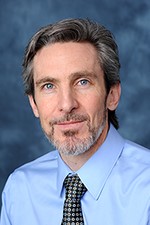
Lawrence J. Jennings, MD, PhD, is an Associate Professor in the Department of Pathology and Laboratory Medicine, Northwestern University's Feinberg School of Medicine. He is board-certificated in anatomic and clinical pathology, molecular genetic pathology, histocompatibility and immunogenetics. He is director of HLA and molecular diagnostic laboratories at Ann and Robert H. Lurie Children’s Hospital of Chicago. He has served as chair of the Molecular Oncology Resource Committee for CAP, the Solid Tumor Representative to the Clinical Practice Committee for AMP and chaired the NGS Analytical Validation Working Group of the Clinical Practice Committee.
.jpg)
Hanlee P. Ji, MD, is a medical oncologist, clinical geneticist and physician scientist whose research program focuses on the development, application and research of genomic determinants of cancer. He is current an Associate Professor of Medicine at Stanford University and Senior Associate Director of the Stanford Genome Technology Center. In addition to his genomics program, he specializes in the treatment of patients with metastatic gastrointestinal cancers and genetic evaluation of hereditary cancer disorders. Having trained at the University of Washington in medical genetics fellowship and Stanford University for medical oncology, he uses his background in both areas to better understand the biological and clinical implications of genomic alterations. One of the major objectives of his research is the development of new genomic technologies and genetic assays that inform critical clinical questions encountered by oncologists and physicians. Among the various technologies his group has developed include the use of molecular barcodes, in vitro Crispr assays and linked reads approaches to improve the analysis of structural variation and aneuploidy in gastrointestinal cancers. He is applying these approaches on primary clinical specimens to better inform our understanding of the genomic structural complexities seen in gastric and colorectal cancer.
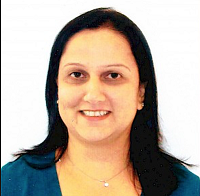
Vaidehi Jobanputra, PhD, is the Director of Molecular Diagnostics at the New York Genome Center (NYGC). She holds a joint appointment as an Associate Professor of Pathology and Cell Biology at Columbia University Medical Center, where she serves as a co-director of the Laboratory of Personalized Genomic Medicine at Columbia University Medical Center and Clinical Cytogenetics at the New York Presbyterian Hospital. Dr. Jobanputra received her PhD from the All India Institute of Medical Sciences, New Delhi and a MS in Biostatics in the clinical research track from Columbia University. She is a board certified (American Board of Medical Genetics and Genomics) clinical molecular geneticist and cytogeneticist. She is interested in clinical and translational research in genetic diseases and cancer. She is a member of the Dosage Sensitivity Curation task team of the ClinGen Genomic Variant Working Group. Dr. Jobanputra is responsible for the creation and build-out of NYGC’s clinical diagnostics laboratory. She has developed next-generation sequencing molecular diagnostic assays for Oncology and Genetic Testing. Recently, her lab participated in two clinical studies to investigate efficiency and feasibility of whole genome sequencing to inform therapeutic options based on the individual’s genomic profile.

Melissa R. Johnson, BSc, is a Technical Supervisor over the Molecular Infectious Disease Laboratory at ARUP Laboratories in Salt Lake City, Utah. She received a BS in Biological Sciences from Utah Valley University. She brings over 14 years of molecular laboratory experience with seven of those years being directly involved in transitioning new laboratory developed tests and instrumentation into the clinical lab.
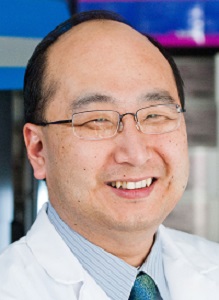
J. Keith Joung, MD, PhD, is a leading innovator in the field of genome editing. He is currently Desmond and Ann Heathwood Research Scholar, Pathologist, and Associate Chief of Pathology for Research at Massachusetts General Hospital (MGH) and is Professor of Pathology at Harvard Medical School. He is also a member of the Center for Cancer Research and the Center for Computational and Integrative Biology at MGH. Dr. Joung has been a pioneer in the development of important technologies for targeted genome editing and epigenome editing of human cells. He has received numerous awards including an NIH Director’s Pioneer Award, an NIH Director’s Transformative Research Project R01 Award, the MGH Research Scholar Award, an NIH R35 MIRA (Maximizing Investigators Research Award), and election into the American Association of University Pathologists. He serves on the Board of Directors for the American Society of Gene and Cell Therapy and the editorial boards of Genome Biology, Human Gene Therapy, and Trends in Biotechnology. He is also a scientific co-founder of and advisor to Editas Medicine, a company dedicated to the translation of genome editing technologies for therapy of human diseases. Dr. Joung holds a Ph.D. in genetics from Harvard University, an M.D. from Harvard Medical School and an A.B. in biochemical sciences from Harvard College.
Jennifer A. Kanakry, MD, is the Clinical Head of Transplant for the Experimental Transplantation and Immunology Branch at the National Cancer Institute within the National Institutes of Health. Dr. Kanakry received her B.A. from Pomona College in Claremont, California, where she studied cognitive neuropsychology and biology. She then went on to receive her medical degree from a joint program between Dartmouth College and Brown University. She completed both her residency training in Internal Medicine and fellowship training in Hematology at Johns Hopkins Hospital. Her clinical research focuses on virus-associated cancers, EBV-related blood based tumor markers, and allogeneic bone marrow transplantation. In 2013, she joined the Hematology faculty at Johns Hopkins, where she primarily focused on treating patients with diseases that more commonly occur in the setting of immunodeficiency, including lymphoma, disorders of immune dysregulation, and virus-associated lymphoproliferative disorders. She continued her research on Epstein-Barr virus and Kaposi sarcoma-associated herpesvirus related cancers, investigating biomarkers for these diseases and carrying out clinical trials for patients with these cancers. In 2015, she joined the National Cancer Institute, where she continues to focus on diseases related to immunodeficiency, virus-associated malignancies, blood-based markers of virus-associated cancers, and the role of allogeneic bone marrow transplantation and other adoptive immunotherapies in curing inherited immunodeficiency diseases.

Daniel C. Koboldt, MSc, is a Principal Investigator for the Institute of Genomic Medicine (IGM) at Nationwide Children’s Hospital, and Research Assistant Professor of Pediatrics at The Ohio State University. His group at IGM applies next-generation sequencing (NGS) technologies to understand the genetic basis of rare disorders and pediatric cancers. He is also the developer of VarScan, a widely-used tool for detecting somatic mutations and copy number alterations using NGS data; and MendelScan, a variant prioritization and disease gene mapping tool for rare inherited diseases.
Melissa J. Landrum, PhD, is the team lead for the ClinVar database, a publicly available archive of variants and their relationship to disease at the National Center for Biotechnology Information (NCBI) at the NIH. She received her PhD in human genetics from Johns Hopkins University in 1999. Prior to working on ClinVar, she spent 12 years working on the RefSeq project at NCBI, where she provided manual gene annotation for human and other mammalian genomes.
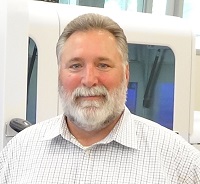
Michael A. Lewinski, PhD, D(ABMM), is currently the Sr. Director of Medical Affairs for Microbiology at Roche Molecular Systems, Inc. in Pleasanton, California. He completed his Doctor of Philosophy degree in Microbiology and Immunology and a clinical postdoctoral Fellowship in Medical and Public Health Laboratory Microbiology at UCLA. He is a Diplomate of the American Board of Medical Microbiology, a licensed Laboratory Director and a certified Molecular Biologist. Prior to joining Roche, he was the Chief of Clinical Microbiology and Professor of Pathology and Laboratory Medicine, David Geffen School of Medicine at UCLA. Prior to UCLA he was the Senior Scientific Director of Infectious Diseases and Clinical R&D at Quest Diagnostics Nichols Institute and Focus Diagnostics, Inc. He has served as the President of the Southern California Branch of the American Society for Microbiology, served on the Council of the Pan American Society of Clinical Virology and as Chair of the Infectious Disease Subdivision of the Association for Molecular Pathology and currently serves on the Editorial Board for the Journal of Clinical Virology. His research interests have focused on the development and the automation of rapid molecular tests for the detection, quantification, and characterization of microorganisms for the diagnosis of disease and for monitoring disease progression and response to therapy. He holds several patents and has published in various disciplines within infectious diseases and laboratory medicine.
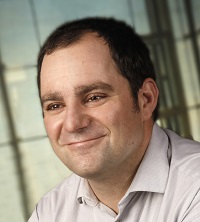
Alexander Lex, PhD, is an Assistant Professor of Computer Science at the Scientific Computing and Imaging Institute and the School of Computing at the University of Utah. Before joining Utah he was a lecturer and a post-doctoral visualization researcher in Hanspeter Pfister's group at the Harvard School of Engineering and Applied Sciences. He received his PhD from the Graz University of Technology in 2012. In 2011 he was a visiting researcher at the Computational Genomics Research Group at Harvard Medical School. His primary research interests are data visualization, especially applied to molecular biology, and human computer interaction. He is one of the principal investigators of the Caleydo project, an open-source framework for the visualization of biological data. Alexander is the recipient of an Erwin Schroedinger Fellowship, granted by the Austrian Science Fund, and has won numerous awards, including multiple best paper awards or honorable mentions at visualization conferences and a best dissertation award from his alma mater.
http://alexander-lex.net
.jpg)
Marilyn M. Li, MD, is a Professor of Pathology and Laboratory Medicine, Professor of Pediatrics, Vice Chief of the Division of Genomic Diagnostics, Director of Cancer Genomic Diagnostics at Children’s Hospital of Philadelphia, University of Pennsylvania, Perelman School of Medicine. Dr. Li holds a American Board of Medical Genetics certification in Clinical Cytogenetics and Clinical Molecular Genetics. Prior to her appointment at CHOP, she served as the director of Cancer Genetics Laboratory, Baylor College of Medicine, the director of the Tulane Clinical Cytogenetics Laboratory, Clinical Molecular Genetics Laboratory, Tulane Matrix DNA Diagnostic Laboratory, and the director of the Genomics Core Laboratory of Louisiana Cancer Research Consortium. She is a fellow of ACMGG, ASHG, SWOG, AMP, ASH, and ASCO. Dr. Li's primary research interest is clinical application of microarray and next generation sequencing technologies in cancer research and clinical diagnosis. Her group has studied thousands of cancer genomes using custom-designed cancer-specific arrays, cancer-specific next generation sequencing panels and cancer exomes. Their experience demonstrated that these state of the art technologies detect genomic alterations that can be used for cancer diagnosis, risk stratification, disease follow-up, and therapeutic selection. She initiated, organized and is the first president of the Cancer Genomics Consortium, an international consortium whose mission is to facilitate the development and utilization of microarray-based technology and NGS technology for high quality, reliable cancer genetic testing in diagnostic laboratories. She is the recipient of the 2010-2011 Luminex/ACMGF Award for the promotion of safe and effective genetic testing and services. Other research projects in her lab include studies of common leukemia- and lymphoma-associated genetic aberrations in healthy individuals and mosaic overgrowth syndromes and chromosome microdeletion syndromes. She is an active member of the medical school and is involved in teaching medical students and Ph.D. students, and training residents and fellows.
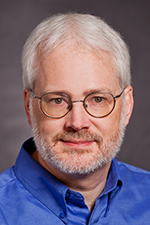
Stephen Lincoln, is responsible for scientific collaborations and clinical studies at Invitae. He has over 25 years of experience in bioinformatics, specifically as it is applied in the fields of genetics and genomics. His most recent research include studies of the clinical validity and utility of expanded genetic testing in hereditary cancers (PMIDs 26270727 and 26207792). He also works on rigorous methods to assess analytic validity of new assays and algorithms. Previously he held senior positions at Complete Genomics, Affymetrix and Incyte Genomics. Steve's academic background includes 7 years with Eric Lander at the Whitehead Institute and MIT during the initial phases of the human genome project.
.jpg)
Elaine Lyon, MD, is professor of pathology at the University of Utah School of Medicine and a Medical Director of Molecular Genetics/Genomics at ARUP Laboratories. She received her Ph.D. in Medical Genetics and is certified by the American Board of Medical Genetics in Clinical Molecular Genetics. Dr. Lyon’s clinical laboratory responsibilities include quality assurance, review of technical assays, and interpretation of results in the context of the clinical indications. In addition to her clinical service, she is involved with research and development in human genetics, validating methods under CLIA requirements, and transferring them to the clinical laboratory. Dr. Lyon’s national participation has promoted appropriate molecular genetic clinical testing. As President of AMP in 2014, she was senior author on a manuscript entitled The Spectrum of Clinical Utilities in Molecular Pathology Testing Procedures for Inherited Conditions and Cancer: A Report of the Association for Molecular Pathology. She continues her involvement with AMP’s Professional Relations and Economic Affairs committees and is chair of the working group for Variant Interpretation Across Laboratories (VITAL). She is a member of the American Medical Association’s Molecular Pathology Advisory Group, reviewing proposals for molecular pathology coding. She recently was elected a molecular director for the American College of Medical Genetics and Genomics (ACMG) Board of Directors.
Navin Mahadevan, MD, PhD, has completed a Molecular and Genetic Pathology Fellowship at Harvard Medical School, and is currently completing Anatomic Pathology residency training at the Brigham and Women's Hospital in Boston, Massachusetts. He received his undergraduate training in Biology at Washington University in St. Louis. After a Fulbright Scholarship in Melbourne, Australia, he attended the University of California, San Diego for MD/PhD training. He did his thesis work in the lab of Dr. Maurizio Zanetti, where he investigated the cell-extrinsic effects of tumor endoplasmic reticulum stress on myeloid antigen presenting cells, and the tumor microenvironment. As part of his current training in pathology, he is interested in further molecular and immunopathologic profiling of the tumor microenvironment, including in the setting of immunotherapy.
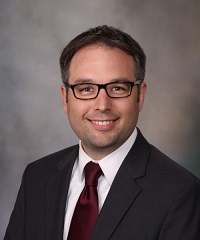
Joseph J. Maleszewski, MD, is a Associate Professor of Pathology and Medicine at Mayo Clinic College of Medicine, USA, where he is also a consultant with joint appointments in Laboratory Medicine & Pathology, Cardiovascular Medicine and Medical Genomics. He serves as section head of cardiovascular pathology and program director of the cardiovascular pathology training fellowship. He received his MD at Michigan State University's College of Human Medicine, and then took his residency in anatomic and clinical pathology at The Johns Hopkins Hospital. He completed fellowships in cardiovascular pathology and molecular genetic pathology at Mayo Clinic. His main areas of research interest are cardiac tumours, cardiovascular diagnostics in congenital and acquired cardiovascular disease, and genomics/proteomics of cardiomyopathies. He has authored more than 110 manuscripts and 60 book chapters as well as edited 2 major texts.
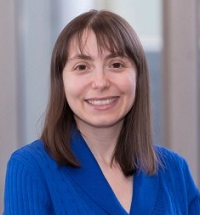
Diana Mandelker, MD, PhD, is an assistant attending pathologist on the molecular diagnostics service at Memorial Sloan Kettering Cancer Center (MSKCC) and specializes in germline genetic analysis. She is also the associate director of the molecular genetic pathology training program at MSKCC. Dr. Mandelker received her BS and MS degrees from Yale University in Molecular Biophysics and Biochemistry. She then completed her MD and PhD degrees at the Johns Hopkins School of Medicine, followed by a clinical pathology residency at Brigham and Women’s Hospital and pathology informatics and molecular genetic pathology fellowships at Harvard Medical School.
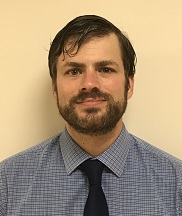
Patrick Mann, MD, is a molecular genetic pathology fellow in the Department of Pathology & Immunology at Washington University. He received his M.D. from the University of Chicago and completed a residency in Anatomic and Clinical Pathology at University of Colorado. Since coming to Washington University, he has been active in the Genomics & Pathology Services, presenting at bimonthly departmental molecular didactics, and assisting in several projects including development of a RNA-Seq panel and evaluation of prospective proficiency testing samples for next generation sequencing. Today he will be talking about identifying patients at risk for myelodysplastic syndrome through Next Generation Sequencing of cytopenias with equivocal or absent morphologic dysplasia.

Jonna Mazet, DVM, MPVM, PhD, is a Professor of Epidemiology and Disease Ecology and Executive Director of the One Health Institute in the UC Davis School of Veterinary Medicine, where she focuses on global health problem solving, especially for emerging infectious disease and conservation challenges. Dr. Mazet is active in international One Health research programs, most notably in relation to disease transmission among wildlife, domestic animals, and people and the ecological drivers of disease emergence. Currently, she is the Global Director of a $175 million viral emergence early warning project, named PREDICT, that has been developed with the US Agency for International Development’s (USAID) Emerging Pandemic Threats Program. She was elected to the US National Academy of Medicine in 2013 in recognition of her successful and innovative approach to emerging environmental and global health threats and serves on the National Academies’ Forum on Microbial Threats, as well as chairs the One Health Work Group.

Jamie McDonald, MSc, is a Licensed Genetic Counselor and Assistant Professor, Department of Pathology. She received an undergraduate degree from Carleton College in Biology and a master’s degree in Genetic Counseling at the University of California at Berkeley. She is certified as a Genetic Counselor by the American Board of Medical Genetics and American Board of Genetic Counseling. Jamie began work at the University of Utah Medical Center in 1988 and worked in the Departments of Pediatrics, Obstetrics and Gynecology and the Huntsman Cancer Institute’s Hereditary Cancer Clinics as a managing genetic counselor before focusing on hereditary hemorrhage telangiectasia (HHT). In 1995 she helped establish the University of Utah HHT Center of Excellence and has been a core member of its multidisciplinary team since. She has been the Center Co-Director for many years. Jamie has many publications focused on molecular diagnostics for HHT. She has served on the HHT Foundation International Medical and Scientific Advisory Board for many years. She co-chaired the Clinical and Molecular Diagnosis Group at the International Management Guidelines Conference, which lead to publication of consensus guidelines for the diagnosis and management of this vascular dysplasia.
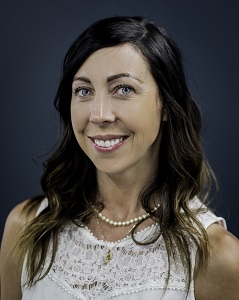
Lindsay Meyers, BSc, is the Director of the Medical Data Systems Program at BioFire Diagnostics and has lead the creation of FilmArray Trend, BioFire’s cloud based epidemiology research system. She began her career on the FilmArray invention team, as one of the lead biochemistry Scientists. Since FilmArray launch her areas of expertise have expanded to health information privacy and data science. She created and directed the Post Market Surveillance and Data Science teams at BioFire Diagnostics. More recently, her groups have developed data research products for clinical labs and BioFire scientific teams, in coordination with public health agencies and patient privacy experts. Her research objective is to inform health care professionals regarding syndromic-related pathogen circulation, primarily those responsible for respiratory and gastrointestinal diseases. She aims to extend the utility of FilmArray through data exploration and study of metrics available only in the Trend cloud system, containing over 350 thousand exported patient tests results.
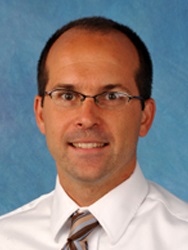
Nathan D. Montgomery, MD, PhD, is an assistant professor in the Department of Pathology and Laboratory Medicine at the University of North Carolina School of Medicine. His primary clinical and research interests center on the underlying biology, including molecular features, of hematolymphoid neoplasms. Much of his research has been based in sub-Saharan Africa, where Dr. Montgomery has worked to expand laboratory capacity, including access to molecular diagnostics. In his clinical work at UNC, Dr. Montgomery has been actively involved in efforts to incorporate next-generation sequencing technologies into the diagnostic work-up of hematologic malignancies, with particular interest in efforts to evaluate performance and quality measures in the clinical setting. Dr. Montgomery completed both his MD and PhD degrees at UNC, where he remained for residency and fellowship training. He is board certified in Anatomic and Clinical Pathology and Hematopathology, and is also boards eligible in Molecular Genetic Pathology.
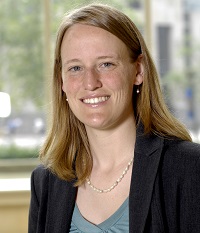
Ann M. Moyer, MD, PhD, is a co-Director of the Personalized Genomics Laboratory at Mayo Clinic. The Personalized Genomics Laboratory specializes in genetic testing for pharmacogenomics, cardiovascular diseases, and primary immunodeficiencies. Dr. Moyer is a consultant in the Department of Laboratory Medicine and Pathology where she holds the academic rank of Assistant Professor. She earned her medical and graduate degrees as part of the Mayo Clinic Medical Scientist Training Program. Her thesis work focused on pharmacogenomics of phase II drug metabolizing enzymes. She completed residency training in Anatomic and Clinical Pathology, with an additional year devoted to research, followed by a fellowship in Molecular Genetic Pathology, also at the Mayo Clinic. Dr. Moyer serves as a member of the College of American Pathologists/American College of Medical Genetics Molecular Genetics Committee and Pharmacogenetics Workgroup.
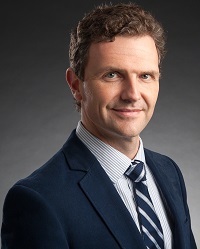
Charles G. Mullighan, MBBS (Hons), MSc, MD, earned his Bachelor and Doctor of Medicine degrees from the University of Adelaide, Australia, and his Master of Science degree from the University of London. He trained in hematology and hematopathology in Adelaide. He trained as a postdoctoral fellow at St Jude. He joined the faculty in 2008 and is currently Member in the Department of Pathology and co-leader of the Hematologic Malignancies Program. His research uses genomic profiling and experimental modeling to investigate the genetic basis of leukemia, most notably high risk acute lymphoblastic leukemia. This work has identified several new genetic alterations that contribute to the development of leukemia, and have entered the clinic as diagnostic tests and new therapeutic targets. He has earned several honors including being named a Pew Scholar in the Biomedical Sciences (2009), being awarded the American Society for Hematology Merit Award (2007), Joanne Levy Memorial Award for Outstanding Achievement (2008) and William Dameshek Prize (2016), election to the American Society of Clinical Investigation (2012) and American Association of Physicians (2016), and the Meyenburg Prize for Cancer Research (2012).
Deborah Neklason, PhD, is the Program Director of Utah Genome Project, Associate Professor of Genetic Epidemiology in the Department of Internal Medicine and a Huntsman Cancer Institute Investigator at the University of Utah. As Program Director of Utah Genome Project, she works closely with colleagues to apply the latest sequencing technologies, bioinformatics tools, and human subject research ethics to solve the genetic basis of many important medical conditions. Dr. Neklason’s current research projects involve identification of inherited genetic variants that are important in cancer risk by engaging large families identified in Utah Population database, developing diagnostics to identify individuals at risk of developing colon cancer, and clinical trials to prevent cancer. One of her exciting new projects uses geocoding data across time for individuals in Utah Population database to evaluate environmental modifiers of cancer risk. Prior to joining the faculty at University of Utah, Dr. Neklason was manager for biochemical assay products at Echelon Biosciences in Salt Lake City. She received her PhD in Human Genetics from the University of Utah in 1999.
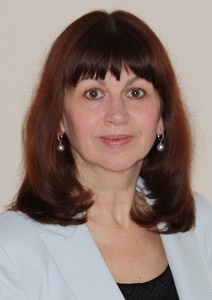
Marina N. Nikiforova, MD, is Professor of Pathology and Director of the Molecular & Genomic Pathology Laboratory at the University of Pittsburgh Medical Center (UPMC). Dr. Nikiforova has a longstanding clinical and research interests in genomics of thyroid cancer and brain tumors and she has led the development of a novel NGS-based tests for preoperative diagnosis of thyroid cancer in FNA samples (ThyroSeq) and for diagnosis, prognostication and treatment of adult and pediatric brain tumors (GlioSeq). Dr. Nikiforova is a member of the Association for Molecular Pathology (AMP) where she served on Nominating committee, Program Committee, and as a Chair of Solid Tumors subdivision. During past two years, Dr. Nikiforova served as a Chair of the Clinical Practice Committee and on the Board of Directors at AMP. Under her leadership, the committee has developed analytical and clinical guidelines for NGS analysis and variant interpretation in cancer. She is also a member of the Laboratory Practice Committee at the American Thyroid Association (ATA). Dr. Nikiforova has published over 150 peer-reviewed scientific articles and five book chapters, most of which in the area of molecular diagnostics of cancer.
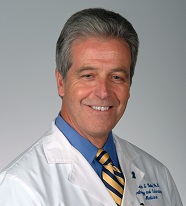
Frederick S. Nolte, PhD, D(ABMM), F(AAM), is currently Professor and Vice Chair for Laboratory Medicine in the Department of Pathology and Laboratory Medicine, and Medical Director of Clinical Laboratories, Molecular Pathology and Point-Care-Testing at the Medical University of South Carolina. He is a Diplomate of the American Board of Medical Microbiology and a Fellow of the American Academy of Microbiology. Dr. Nolte completed his B.S. degree in biology at the University of Cincinnati and his Ph.D. in medical microbiology at the Ohio State University. Dr. Nolte completed a postdoctoral fellowship in public health and medical laboratory microbiology at the University of Rochester. He is active in and held positions of responsibility in the American Society for Microbiology, Association for Molecular Pathology, Clinical and Laboratory Standards Institute, Infectious Diseases Society of America, American Society for Clinical Pathology, American Association for Clinical Chemistry, and College of American Pathologists. He has authored numerous book chapters, practice guidelines, and more than 100 peer-reviewed publications in the areas of clinical microbiology and molecular diagnostics. He has served of the scientific advisory boards and provided consulting services to many start-up and established diagnostic companies. In addition, he has experience with FDA clinical trial work and served as a member and consultant to the CDRH FDA Microbiology Devices Panel.
Damon R. Olson, MD, is currently a molecular genetic pathology fellow at Baylor College of Medicine in Houston, Texas. He recently completed a pediatric pathology fellowship at the University of Colorado Denver (2016-2017) and is board-certified in Anatomic and Clinical Pathology. He was chief resident at the University of Colorado Denver where he finished training in 2016. His previous education includes medical training at the University of Minnesota - Twin Cities and a bachelor of science in French and pre-medical studies at the University of Nebraska Lincoln. He has previously presented at the Association for Molecular Pathology and the United States and Canadian Academy of Pathology annual conferences. He has upcoming presentations at the Society for Pediatric Pathology meeting and is an active fellow of the College of American Pathologists. Additional works include peer-reviewed articles and book contributions. Next year, he is seeking new opportunities to employ his interests in pediatric pathology and associated molecular techniques for diagnostic, prognostic, and therapeutic management of pediatric diseases.
Laura Pasqualucci, MD, is a Professor of Pathology and Cell Biology at the Institute for Cancer Genetics, Columbia University. She received her medical degree from the University of Perugia Medical School in Italy, where she completed a residency in OncoHematology before moving to the United States for a post-doctoral fellowship with Dr. Riccardo Dalla-Favera. She joined the faculty of Columbia University as an Assistant Professor in 2001. Dr. Pasqualucci’s research interests focus on the molecular pathogenesis of B cell malignancies, with emphasis on its most common type, diffuse large B cell lymphoma (DLBCL). Her work has significantly contributed to the understanding of the genetic basis of this aggressive cancer by identifying and functionally characterizing several genetic aberrations that disrupt critical processes/signaling pathways implicated in normal B cell development, leading to malignant transformation. More recently, her group uncovered highly recurrent mutations in genes that encode for epigenetic modifiers, including the methyltransfersase KMT2D and the acetyltransferases CREBBP/p300, which have emerged as central players in many different cancers. This information is currently being exploited for the development of more effective targeted therapeutic approaches. Dr. Pasqualucci has authored more than 100 peer-reviewed scientific articles and book chapters. She serves on the editorial board of Blood and the Journal of Experimental Medicine, as well as on numerous national and international grant review panels, including the NIH, the Leukemia and Lymphoma Society and the AACR. She is also a member of the Lymphoma Research Foundation Scientific Advisory Board and the American Society of Hematology Committee on Scientific Affairs.
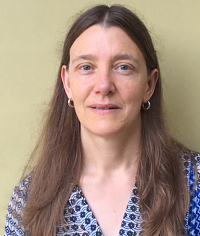
Andrea L. Penton, PhD, is Associate Director of the UNC Hospitals cytogenetics laboratory. She is also Clinical Assistant Professor in Pathology and Laboratory Medicine. Prior to this she was an Assistant Technical Director of Clinical Cytogenetics at LabCorp and completed her fellowship at the Children’s Hospital of Philadelphia, (CHOP). She is board certified in Clinical Cytogenetics by the American Board of Medical Genetics and Genomics, and uses cytogenetic and microarray technologies to diagnose constitutional, prenatal and oncology patient samples. She has extensive experience in molecular genetics and research. In addition, she is involved in teaching, laboratory quality control and literature review. Her interests are in genetic mechanisms and aneuploidy correction during human development.

Jonas Pettersson, PhD, is the Molecular Pathology Supervisor at Keck Medical Center of USC in Los Angeles, CA. He completed his PhD in Molecular Biology at the University of Umea, Sweden in 2001. His graduate work focused on the pathogenesis of Yersinia pseudotuberculosis. As a visiting fellow at the Rocky Mountain Laboratories (NIAID/NIH) in Hamilton, MT his research focused on Yersinia pestis, the causative agent of plague and Borrelia spirochetes causing Lyme disease and relapsing fever. At the Baylor College of Medicine in Houston, TX Jonas worked on understanding virulence factors of Treponema pallidum, the spirochete causing syphilis. He worked for one year at a small biotech company before deciding to venture into the field of Clinical and Public Health Microbiology. He trained to become a Public Health Microbiologist and has also trained and received licensure for Clinical Microbiology and Molecular Biology.
.png)
John D. Pfeifer, MD, PhD, is Vice Chair for Clinical Affairs in the Department of Pathology at Washington University School of Medicine. He is a Professor of Pathology and is board certified in Anatomic Pathology and also Molecular Genetic Pathology. Over the last several years Dr. Pfeifer has helped lead the development of Genomics and Pathology Services at Washington University in St. Louis (GPS@WUSTL). GPS@WUSTL is a CAP accredited/CLIA licensed environment designed around next generation sequencing (NGS) analysis to support patient care, clinical trials, and translational research studies, and Dr. Pfeifer manages the development of the wet bench analytics, bioinformatics, and faculty staffing models required to support NGS for clinical applications. He is also involved in NGS clinical test design (including gene-panel based testing versus exome- or genome-based sequencing) for inherited diseases and cancer, and in the evaluation of different sequencing platforms. Dr. Pfeifer's academic interests are primarily focused on investigation of the role of molecular genetic testing in the analysis of tissue specimens, specifically on the methods and clinical settings in which molecular testing provides independent information that increases diagnostic accuracy, provides more accurate prognostic estimates, or can be used to guide therapy. In line with his role in the development of GPS@WUSTL, several of his recent projects have focused on the role of NGS in patient care.
.jpg)
Christopher R. Polage, MD, MAS is an Associate Professor of Pathology and Infectious Diseases at the University of California Davis (UC Davis), School of Medicine and Medical Director of the Clinical Microbiology Laboratory for the UC Davis Health System. He conducts outcomes and healthcare services research related to infectious disease diagnostics and healthcare-associated infections. He is on the Editorial Board for the Journal of Clinical Microbiology and received a Distinguished Clinical Research Achievement Award from the Clinical Research Forum in 2016 for his studies of clinical outcomes in hospitalized patients with discrepant test results for Clostridium difficile infection.
.jpg)
Victoria M. Pratt, PhD, FACMG, is a Medical and Clinical Molecular Geneticist board-certified by the American College of Medical Genetics. She is the Director of the Pharmacogenomics Laboratory and Molecular Genetics Laboratory at Indiana University School of Medicine. Prior to joining Indiana University, she was Chief Director, Molecular Genetics, for Quest Diagnostics Nichols Institute. In addition to her work, Dr. Pratt is currently serving on the Centers for Medicare and Medicaid Services Clinical Diagnostic Laboratory Tests Advisory Panel. Dr. Pratt continues to serve on the CDC’s GeT-RM program for reference materials for Molecular Genetics. She is currently serving on the National Academies (formerly Institute of Medicine)’s Roundtable on Genomics and Precision Health. She also served on the U.S. Secretary of Health and Human Services Advisory Committee on Genetics, Health and Society for the Oversight of Genetic Testing and the Advisory Committee on Hereditary Disorders in Newborns and Children. She also participated in the preparation of the Morbidity and Mortality Weekly Report for Best Practices in Molecular Genetic Testing for the Centers for Disease Control and Prevention (CDC) and the Institute of Medicine/National Academy of Medicine’s Committee on Policy Issues in the Clinical Development and Use of Biomarkers for Molecularly Targeted Therapies. Dr. Pratt is Past Chair of the Genetics, Clinical Practice and the Program committees and is currently a member of the Economic Affairs Professional Relations committees for the Association of Molecular Pathology. She is a former advisor of EurogenTest for genetic test validation. Dr. Pratt serves on the American Medical Association’s (AMA’s) Molecular Pathology Current Procedural Terminology (CPT) Advisory committee. Dr. Pratt has authored over 50 peer-reviewed manuscripts and book chapters. She is also an Associate Editor for the Journal of Molecular Pathology. Dr. Pratt graduated with a Ph.D. in Medical and Molecular Genetics from Indiana University School of Medicine, Indianapolis, IN in 1994. Her fellowship training was in Ph.D. Medical and Clinical Molecular Genetics at Henry Ford Hospital, Detroit MI.

Richard D. Press, MD, PhD, received his undergraduate degree from Northwestern University and followed with his MD and PhD from Case Western Reserve University. He was a Resident Physician at the University of Pennsylvania as well as a Research Associate with the Wistar Institute. He is currently serving as the Director of the Clinical Molecular Diagnostics and Molecular Pathology Laboratories at the Oregon Health & Sciences University as well as a Professor for the Pathology & Genetics Departments at OSHU. His lab has been an integral part of numerous projects over the past two decades whereby assays for promising molecular biomarkers (primarily for hematologic malignancies) have undergone technical enhancement, and analytical and clinical validation. Outside of the management of his labs, Dr. Press is a member of several committees for the College of American pathologists, Association for Molecular Pathology, Center for Disease Control, and the Molecular & Clinical Genetics Panel.
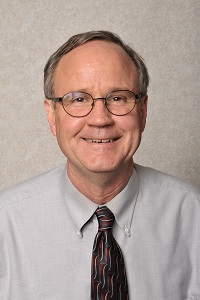
Thomas W. Prior, PhD, is a Professor of Pathology and Neurology, and a Director in the Division of Molecular Pathology at The Ohio State University Medical Center. He joined The Ohio State University faculty as a tenure assistant professor in 1990, after completing post-doctoral training at the University of North Carolina. He has a longstanding research interest in the genetics of neuromuscular disorders, specifically in clinical applications and mutation analysis. He has been most recently involved in the genetic disorder, spinal muscular atrophy (SMA). His laboratory developed the first SMA carrier test and he has been involved in both population carrier and newborn screening projects for SMA. He has been active in determining the role of the SMN2 gene and other gene modifiers in effecting the disease phenotype and the identification of new types of mutations in the spinal muscular atrophy gene and their effect on the disease severity. Over the years the Molecular Pathology Laboratory has also been involved in several research projects and clinical trials including: Muscular Dystrophy Cooperative Research Center (funded by the NIH), several projects funded by the Muscular Dystrophy Association, Clinical Trials for Pediatric Spinal Muscular Atrophy Project (funded by the NIH), Project Cure: SMN2 Copy Number Assay (funded by the Families of SMA), Population Carrier Screening for Spinal Muscular Atrophy (funded by the Claire Altman Heine Foundation) and Incidence and Molecular Screening for Hereditary Cancer (funded by the NIH).

Colin C. Pritchard, MD, PhD, is an Associate Professor of Laboratory Medicine, as well as the Associate Director of the Genetics and Solid Tumors Laboratory at the University of Washington Medical Center that services the Seattle Cancer Care Alliance (SCCA). Dr. Pritchard undertook his graduate training at the University of Washington in Seattle and completed his medical training at the University of Washington School of Medicine. The Pritchard laboratory focuses on oncology molecular diagnostics, particularly the source and utility of cell-free nucleic acid biomarkers in blood, and the development of innovative molecular diagnostics for the identification of mutations that can guide therapeutic decision-making. His clinical work focuses on applications of next-generation sequencing gene panels for cancer risk assessment and precision treatment. He has led the development and implementation of the ColoSeq™ Lynch and Polyposis Syndrome Panel and UW-OncoPlex™ Cancer Gene Panel in current clinical use for cancer patients and their families.
For more details about Dr. Pritchard see:
http://www.seattlecca.org/doctor/colin-c-pritchard.cfm
For more details about the UW-OncoPlex™ program for precision medicine see:
http://www.seattlecca.org/diseases/oncoplex-precision-medicine.cfm
Andres E. Quesada, MD, is a molecular genetics fellow at the University of Texas MD Anderson Cancer Center. Dr. Quesada did his undergraduate studies at Rice University, and he received his MD and completed residency training in anatomic and clinical pathology at the University of Texas McGovern medical school at Houston. He completed his hematopathology fellowship training at the University of Texas MD Anderson Cancer Center. Dr. Quesada is board certified in anatomic and clinical pathology and hematology. His interests and research have been predominantly focused on acute myeloid leukemia and the manifestations of specific mutations.
Heidi L. Rehm, PhD, is a board-certified clinical laboratory geneticist and genomic medicine researcher. She is the Chief Laboratory Director at the Partners Laboratory for Molecular Medicine (LMM), the Medical Director of the Broad Institute Clinical Research Sequencing Platform and Associate Professor of Pathology at Brigham & Women's Hospital and Harvard Medical School. She is a leader in defining standards for the interpretation of sequence variants and a principal investigator of ClinGen, providing free and publicly accessible resources to support the interpretation of genes and variants. Dr. Rehm also co-leads the Broad Center for Mendelian Genomics with Daniel MacArthur focused on discovering novel rare disease genes and co-leads the Matchmaker Exchange to also aid in rare disease gene discovery. She is a strong advocate and pioneer of open science and data sharing, working to extend these approaches through her role as a member of the steering committee of the Global Alliance for Genomics and Health. Dr. Rehm is also a co-investigator of the BabySeq Project exploring the clinical use of genome sequencing as an adjunct to newborn screening, principal investigator in the eMERGE consortium supporting genomic discovery and genomic medicine implementation research, and a principal investigator on a project to develop i2b2 into a Health Innovation Platform for clinical decision support.
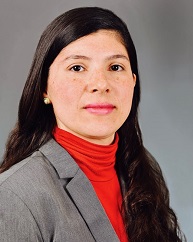
Tamara Restrepo, BSc, (ASCP)CM, is the technical supervisor of the Laboratory for Molecular Pediatric Pathology (LaMPP) at Boston Children’s Hospital. She received her B.S. degree in Biochemistry and Molecular Biology from the University of California at Santa Cruz. She has broad expertise in molecular diagnostics, including expertise in multiple next-generation sequencing platforms. Prior to working at Boston Children’s Hospital, she contributed to the Million Veteran Program at Claritas Genomics and helped to establish their NGS clinical testing workflow. She continues to further her education in Healthcare Management through the Healthcare MBA program at Simmons College.
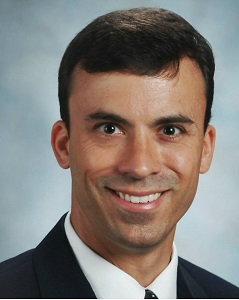
Mark J. Routbort, MD, PhD, is a practicing molecular pathologist and bioinformatician at the University of Texas MD Anderson Cancer Center, where he develops and supports the computational pipelines for next generation sequencing in the clinical Molecular Diagnostics Laboratory. He is board certified in Anatomatic & Clinical Pathology, Hematology, and Clinical Informatics. Receiving a Master's degree in Biochemistry and Molecular Biology from the University of Chicago, and later his MD and PhD degrees at Duke University, he joined the Speakers at MD Anderson in 2004, where he has focused his informatics efforts on initiatives directed at improving pathologist and lab workflow, and on improving the generation, storage, reporting, and retrieval of pathology and laboratory data. He currently serves as Director of Computational and Integrational Pathology for the Division of Pathology and Laboratory Medicine, facilitating the transactional and integrational use of genomic data both internally and with large scale multi-institutional collaborations like NCI-MATCH and AACR Project GENIE.

Somak Roy, MD, is an Assistant Professor of Pathology at the University of Pittsburgh Medical Center (UPMC). He serves as the Director of Molecular Informatics and genetics Services at the Division of Molecular and Genomic Pathology at UPMC. Dr. Roy is a board-certified molecular and anatomic pathologist. His clinical and translational work focuses on the following; 1) Use of modern computational infrastructure and innovative software technology for high-throughput sequence analysis, genomic data visualization, and optimizing molecular laboratory workflow. 2) molecular characterization of urothelial carcinoma to identify clinically relevant, theranostic biomarkers. Since 2014, he has been a member of Informatics Subdivision in the Association of Molecular Pathology (AMP). He served as a representative to the Clinical Practice Committee from 2014-2016 and currently to the Program Committee. Dr. Roy is currently chairing the AMP workgroup that is developing guidelines for validation of clinical NGS bioinformatics pipeline. Dr. Roy completed his medical school training at Seth G.S Medical College, Mumbai followed by pathology residency training at Maulana Azad Medical College, New Delhi. Upon arrival to the United States, he completed anatomic pathology residency from the University of Pittsburgh Medical Center and fellowships in Molecular and Genitourinary Pathology from the same institution.
Bekim Sadikovic, PhD, DABMG, FACMG, is a Associate Professor of Pathology and Laboratory Medicine at the Western University, and Head of Molecular Genetics at the London Health Sciences and St Joseph’s Healthcare in Ontario Canada. Dr Sadikovic is a diplomate of the American Board of Medical Genetics from Baylor College of Medicine and holds American Board of Medical Genetics certifications in Clinical Molecular Genetics and Clinical Cytogenetics. Prior to his appointment at the Western University, Dr. Sadikovic served as the Head of Advanced Molecular Diagnostics at the McMaster University. Dr. Sadikovic’s research interests revolve around application of genomics technologies to clinical diagnostics with particular focus on development of genomic and epigenomic technologies for diagnosis of both germ-line and somatic epi/genetic conditions. His current research specifically focuses on identification of epi/genetic signatures of constitutional genetic and epigenetic syndromes, and development of analytical and bioinformatic approaches for parallel detection of copy number and sequence variations from NGS data. In chis clinical role Dr Sadikovic oversees the provincial reference Molecular Genetics laboratory performing constitutional, prenatal, and somatic genomic testing across wide range of genomic disorders in Ontario, Canada.
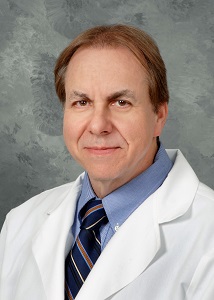
Steven A. Schichman, MD, PhD, is an Associate Professor in the Department of Pathology at the University of Arkansas for Medical Sciences who serves as Assistant Chief for Clinical Pathology, Pathology and Laboratory Medicine Service, at the Central Arkansas Veterans Healthcare System in Little Rock, Arkansas. Dr. Schichman received his medical education at the University of Chicago and completed his PhD thesis work at the California Institute of Technology. He is certified in Hematopathology and Molecular Diagnostics by the American Board of Pathology. Dr. Schichman directs a clinical molecular diagnostics laboratory and a genomics research laboratory at the VA hospital. Active in clinical correlative research, Dr. Schichman has published over 60 research articles and book chapters in areas of molecular genetics including acute leukemia and chronic lymphocytic leukemia. He currently chairs the Pharmacogenetics Subcommittee of the Molecular Genetics Workgroup for the VA National Pathology and Laboratory Medicine program.

Ryan J. Schmidt, MD, PhD, is a third-year clinical pathology resident at Brigham and Women's Hospital in Boston, MA and former fellow in the Harvard Molecular Genetic Pathology training program. He received MD and PhD degrees from the University of California, Los Angeles and graduated from the University of Pennsylvania with BA and MS degrees in molecular biology and biochemistry. His long-term interests surround the clinical application of molecular diagnostic and informatic techniques.

Nikolaus Schultz, PhD, is an Associate Attending in the Computational Oncology Service in the Department of Epidemiology and Biostatistics at Memorial Sloan Kettering Cancer Center (MSKCC). His research focuses on identifying the genomic alterations that underlie different types of cancer. He is involved in several projects of The Cancer Genome Atlas (TCGA) and is an investigator in the Stand Up To Cancer (SU2C) Prostate Cancer Dream Team. He is also the Head of Knowledge Systems in the Marie-Josée and Henry R. Kravis Center for Molecular Oncology (CMO). Here, he leads the development of the cBioPortal for Cancer Genomics, a popular resource for the visualization and analysis of large-scale cancer genomics data sets, as well as OncoKB, a knowledge base for precision oncology.
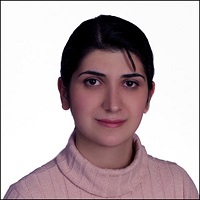
Maryam Shirazi, MD, is currently a GI/liver pathology fellow at Columbia University Medical Center. She received her MD degree from Tehran University of Medical Sciences and completed her residency in Clinical and Anatomical Pathology at the Department of Pathology and Cell Biology, Columbia University Medical Center.
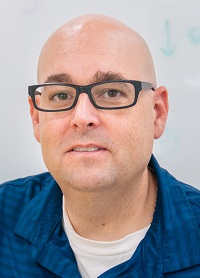
Keith E. Simmon, PhD, obtained a MSc in Cellular and Molecular Biology from the University of West Florida. After graduating Keith join ARUP laboratories as a scientist performing clinical microbiology research and test development. He then joined Isentio and developed software to aide clinical laboratories in interpreting sequence information for microorganism identification. After Isentio, Keith pursed a PhD in Biomedical informatics where he helped to developed a metagenomics analysis platform called Taxonomer. Currently Keith is at ARUP laboratories as Bioinformatics Scientist. His research focuses on to develop developing simple informatics solutions for diagnostics testing.
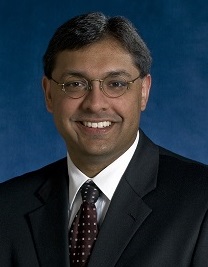
Aatur Singhi, MD, PhD, is an assistant professor of pathology at the University of Pittsburgh Medical Center (UPMC) and within the Division of Gastrointestinal Pathology Center of Excellence. Dr. Singhi graduated from Northwestern University with a BS degree in chemistry and then earned his PhD in molecular genetics from the University of Illinois at Chicago. He received his MD from Case Western Reserve University School of Medicine, followed by residency and fellowship in pathology at Johns Hopkins Hospital. There, he received subspecialty training in pancreatobiliary and gastrointestinal tract pathology. Dr. Singhi’s research interests revolve around the pathology and molecular genetics of pancreatic cancer and precancerous abnormalities, with an emphasis on creating diagnostic tests to aid in classification, prognostication and therapeutics. In collaboration with his colleagues at UPMC, his team has developed a diagnostic platform for the evaluation of fluid and cellular specimens from pancreatic cysts and bile duct fluid for the early detection of pancreatobiliary cancers.
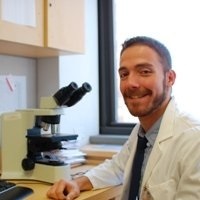
Anthony N. Sireci, MD, is a board certified clinical pathologist and the Physician Manager of the Laboratory of Personalized Genomic Medicine in the Department of Pathology and Cell Biology at Columbia University Medical Center. He received his MD from Johns Hopkins University School of Medicine in Baltimore, Maryland and completed Clinical Pathology Residency training at New York Presbyterian Hospital-Columbia University Medicinal Center. He has been on the faculty at Columbia since 2011.

David H. Spencer, MD, PhD, is an Assistant Professor of Medicine in the Division of Oncology at Washington University School of Medicine, and the Medical Director of the CLIA-Licensed Environment at the McDonnell Genome Institute. Dr. Spencer received his MD and PhD in Genome Sciences from the University of Washington in Seattle, and completed residency training in Clinical Pathology and a Molecular Pathology Fellowship at Washington University in St. Louis. Following his clinical training, Dr. Spencer did post-doctoral research on the genomics and epigenomics of acute myeloid leukemia (AML) in the laboratory of Timothy Ley, MD. Dr. Spencer’s research if focused on investigating the epigenetic mechanisms involved in leukemia development, and the use of clinical sequencing for risk stratification and disease monitoring in AML.
.jpg)
Jeff Stevenson, PhD, is currently the R&D Senior Scientist for Infectious Disease at ARUP Laboratories in Salt Lake City, Utah. He received bachelor's degrees from the University of Washington in Microbiology and in Medical Technology, and a PhD in Molecular Genetics and Cell Biology from the University of Chicago. He continued his studies as a postdoctoral fellow at the Huntsman Cancer Institute in the field of developmental biology. A current focus of the ID R&D group is applying NGS technology to microbial identification and viral resistance testing.
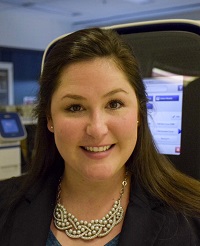
Megan Stonebraker, BSc, is a Staff Scientist at Diatherix Eurofins Clinical Diagnostics. She earned her BS in Biology at the University of Alabama and began her career with Thermo Fisher Scientific designing and developing lentivirus-based ORF expression libraries. Prior to Diatherix, she worked at the Medical Genomics Laboratory at the University of Alabama at Birmingham School of Medicine, a CAP-certified nonprofit clinical laboratory offering comprehensive testing for common and rare genetic disorders. Over the last three years, Megan was the technical lead on a collaborative project with Thermo Fisher Scientific resulting in the successful launch of the ABRx™ Antibiotic Resistance Panel at Diatherix in 2016. Currently, she is working on the expansion of ABRx™ panel content to include additional gene targets. Diatherix is a Frost and Sullivan award winner for Technology Innovation and Leadership of the Year in Molecular Diagnostics in the European Union, as well as a Technology Innovation Award winner for the first commercially available H1N1-09 test performed in a CLIA laboratory.
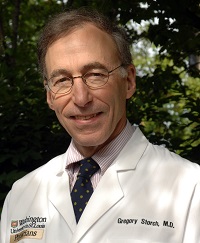
Gregory A. Storch, MD, is the Ruth L. Siteman Professor of Pediatrics and Professor of Medicine and of Molecular Microbiology at Washington University School of Medicine and past chief of the Divisions of Pediatric Infectious Diseases and Pediatric Laboratory Medicine. He received his AB degree from Harvard College and his MD from NYU School of Medicine. He completed internship and residency in internal medicine at the Jewish Hospital of St. Louis, was an Epidemic Intelligence Service Officer for the Centers for Disease Control in the Louisiana Department of Health in New Orleans, and an infectious disease fellow at Washington University. He joined the Washington University faculty in 1981. He is the co-Medical Director of Project ARK, a pediatric HIV service organization affiliated with the Washington University Department of Pediatrics. Storch is past president of the Pan-American Society for Clinical Virology. He currently serves as Chair of the Finance Committee of the Pediatric Infectious Diseases Society, and a member of the Diagnostics Task Force of the Infectious Diseases Society of America. He is also an Associate Editor of the Journal of the Pediatric Infectious Diseases Society. Dr. Storch’s research interests are in molecular diagnosis of infectious diseases and infectious disease genomics. He is co-leader of the Microbial Genomics Unit of the Washington University Department of Pediatrics.
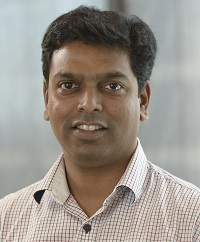
Aijazuddin Syed, MSc, is currently the lead bioinformatics software engineer at Memorial Sloan Kettering Cancer Center’s (MSKCC) clinical bioinformatics group. At MSKCC, he has worked to establish a production scale informatics infrastructure to support large scale clinical grade NGS based molecular assays. He has coauthored original journal publications, and book chapters with emphasis on bioinformatics, informatics, and biomedical informatics. He is profoundly interested in integrating medical, health, and clinical informatics systems. He is currently pursuing a PhD (biomedical informatics) at Rutgers University with a humble desire to bridge the gap between biomedical data and informatics systems and to help better the patient care. His prior work includes, establishing petabyte scale data management and large scale automated analysis workflows at US DOE Lawrence Berkeley National Laboratory. He also is actively a contributing reviewer for various international journals in biomedical and medical informatics.
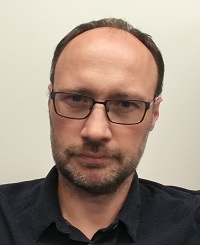
Szabolcs Szelinger, PhD, is currently an American Board of Medical Genetics and Genomics fellow in Clinical Molecular Genetics in the Department of Pathology at the University of California Los Angeles. He obtained his undergraduate and graduate degrees in Molecular and Cellular Biology at Arizona State University. During his studies, Dr Szelinger worked as a Research Associate, and later, as a Staff Scientist in the laboratory of David W. Craig at the Translational Genomics Research Institute (TGEN). In the Craig lab, Dr Szelinger received dual wet-lab/bioinformatics training. His main research projects included the development of multiplexed sequencing approach for next generation sequencing platform, the identification of rare variants’ contributions to genetic risk in psychiatric disorders, and the development of integrative analytical approaches for genomic and functional genomic data for the diagnosis of rare, undiagnosed pediatric disorders. His interest is in the improvement of clinical diagnosis by developing methods that integrate high-dimensional data from genomic, expression, and epigenetic assays to guide diagnosis and individualized treatment course in cancer and rare, inherited diseases.
Amogha Tadimety, completed her B.S.E at Princeton University in 2014, with a major in Chemical and Biological Engineering and certificates in Engineering Biology and Values & Public Life. During that time she completed research internships at the Weatherall Institute of Molecular Medicine at Oxford University and the Wyss Institute at Harvard. Amogha’s undergraduate research work spanned molecular hematology and microfluidics, and she did her senior thesis on organelle assembly and biophysics in the Soft Living Matter Group at Princeton. Amogha is currently pursuing her Ph.D. at Dartmouth College’s Thayer School of Engineering in the Zhang Research Group. She is a PhD Innovation Fellow with an interest in technology development and entrepreneurship. Her research focuses on the development of nanoplasmonic sensors for capture, enrichment, and detection of circulating biomarkers. Amogha’s key contribution is in the area of nanoparticle surface assembly and chemical conjugation, with a focus on low-cost nanosensor fabrication integrated with microfluidics. She is currently working on a plasmonic sensor for rapid, label-free detection of circulating tumor DNA from blood samples in pancreatic cancer patients.

Sir Doug Turnbull, MBBS, MD, PhD, is a clinical academic who leads a basic science research programme in conjunction with developing clinical services. He has three main roles.
Director Wellcome Centre for Mitochondrial Research. The Wellcome Centre is focused on research to improve the lives of patients with mitochondrial disease. Professor Turnbull plays a crucial role in research to identify the genetic defect in patients with mitochondrial disease and his work also focuses understanding the molecular mechanisms underlying the neurological features in patients. With colleagues he is searching for new therapies for patients and actively involved in clinical studies evaluating potential therapies. He has been actively involved in work to prevent the transmission of mitochondrial DNA disease using an IVF technique called mitochondrial donation.
Lead for the NHS Highly Specialised Services for Rare Mitochondrial Services for Adults and Children. Professor Turnbull developed this service provides optimum care for patients with mitochondrial disease throughout the UK with Centres in Newcastle, London and Oxford. This service was built on the back of clinical and basic research which Professor Turnbull has pioneered and the service reviews in excess of 800 patients per year. The service has developed care pathways and patient guidance that are used worldwide of the benefit of patients.
Director MRC/BBSRC Centre for Ageing and Vitality. Professor Turnbull has a major interest in understanding the basic mechanisms involved in human ageing with particular emphasis on the role of mitochondria. The MRC Centre is focused on understanding how these mechanisms are influenced by lifestyle interventions and studies aimed at promoting healthy ageing.
Vivianna M. Van Deerlin, MD, PhD, is a Professor of Pathology and Laboratory Medicine in the Division of Precision and Computational Diagnostics in the Perelman School of Medicine at the University of Pennsylvania (Penn) in Philadelphia, PA where she directs the Molecular Pathology Laboratory and the ACGME-accredited Molecular Genetic Pathology Fellowship program. She received her MD and PhD degrees from Washington University School of Medicine in St. Louis and completed both her residency training in Clinical Pathology and fellowship training in Molecular Pathology at Penn. Dr. Van Deerlin is board-certified in both Clinical Pathology and Molecular Genetic Pathology. Dr. Van Deerlin’s research lab in the Penn Center for Neurodegenerative Disease Research is focused on identifying and studying the underlying genetic mechanisms of neurodegenerative disorders, including amyotrophic lateral sclerosis (ALS). She and her research team are actively collecting patient and family member DNA samples to study the genetics of frontotemporal degeneration, Alzheimer disease, Parkinson disease, and ALS. She and her colleagues have identified and characterized both disease-causing mutations and novel risk factors for ALS and FTD. She has used her clinical expertise to facilitate the translation of genetic tests from a research environment into CLIA-certified clinical tests for patient care. Among her accomplishments, Dr. Van Deerlin coordinated a genome-wide association study on a pathologically-defined subset of FTLD which identified a novel risk genetic risk factor for this subtype of FTLD involving 45 centers and 11 countries. In addition, she is an active participant of numerous professional organizations, including the Association for Molecular Pathology, College of American Pathologists, and the American Board of Pathology. Professor of Pathology and Laboratory Medicine and Director of the Clinical Molecular Pathology Laboratory at the Hospital of the University of Pennsylvania (HUP) and Director of the ACGME-accredited Molecular Genetic Pathology fellowship program.
John S. Welch, MD, PhD, received his MD/PhD from the University of California at San Diego. He completed his Oncology Fellowship at Washington University in St. Louis, where he is currently an assistant professor of medicine in the Division of Oncology. His clinical focus has been on the care of patients with acute Leukemias. His research has focused on improving patient care through translational and basic science, which includes clinical trials that integrate modern genomics, and bench-top research to understand the leukemogenic function of identified mutations. His genomic work in AML outlined the landscape of mutations and determined that the majority of mutations arise in hematopoietic cells as a normal part of aging. On-going projects are now focused on integrating genomics into clinical trials, identifying mutations associated with clinical response to specific chemotherapies, and determining why AML-associated mutations transform bone marrow cells into leukemia.
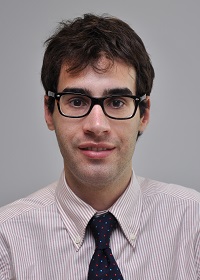
Adam Wilberger, MD, is an Anatomic and Clinical Pathology resident in the ABP Physician-Scientist Research Pathway at the University of Colorado. After completing a year as chief resident, he is now spending the year in the Colorado Molecular Correlates Laboratory engaging in clinical research and developing assays, especially within molecular hematopathology. His research interests include exploring the use of next-generation sequencing in lymphoid neoplasms. Originally from Pittsburgh, PA, Dr. Wilberger received his B.A. in Psychology from the University of Virginia and his M.D. at Drexel University College of Medicine. He completed his first two years of pathology residency at the Cleveland Clinic before moving to the University of Colorado for the remainder. Next year he will be joining the University of Pittsburgh Medical Center as a fellow in hematopathology.

P. Mickey Williams, PhD, is currently serving as a Director of the Molecular Characterization Laboratory at the Frederick National Laboratory for Cancer Research. He received his doctorate from the University of Virginia, and did postdoctoral work at Stanford University. He spent thirteen years at Genentech, where he developed novel assays to support clinical studies and discover new therapeutic targets and contributed to the development of “real-time” PCR technology. Prior to joining CDP in 2010, he was a senior research group leader at Roche Molecular Diagnostics, managing two large multi-national clinical assay studies: The MILE Study (microarray innovations in leukemia) and a collaboration with the LLMPP (leukemia and lymphoma molecular profiling project) and also led projects that led to two FDA approved companion diagnostic tests. In his current position he continues to make contributions to the use of molecular technologies for use as clinical assays.
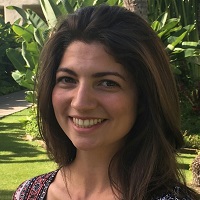
Christina Wood-Bouwens, is a research staff member in the Ji Research Group at Stanford University. She received a B.S. in Cellular and Molecular Biology with a minor in Biotechnology from Santa Clara University, and is an expert in digital PCR and next generation sequencing technologies with applications to cancer biology and precision medicine. She is a co-author on many peer reviewed articles in prestigious journals including Nature Biotechnology, Genome Medicine, Nucleic Acids Research, and the Journal of Molecular Diagnostics.
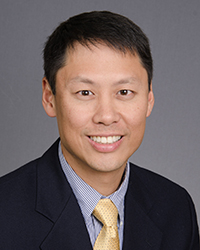
David Wu, MD, PhD, is trained in Anatomic Pathology, Hematopathology and Molecular Genetic Pathology at Brigham and Women’s Hospital and Harvard Medical School, Boston, MA and currently serve as an Associate Director of the Hematopathology Laboratory at the University of Washington, Seattle. My colleagues and I have been involved with applying and developing novel approaches for molecular diagnostics with an interest and focus in minimal residual disease detection in acute leukemias. Specifically, our group has recently explored the potential for next-generation sequencing of immunoglobulin and T-cell receptor genes to contribute to leukemia detection.
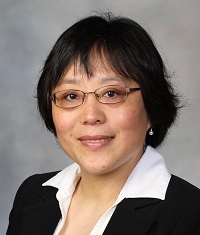
Xuemei Wu, MD, PhD, is currently a molecular genetic pathology fellow at Oregon Health & Science University (OHSU), Portland, Oregon. She just completed her residency in anatomic pathology and fellowship in surgical pathology at Mayo Clinic in Rochester, Minnesota, in the summer of 2017. Prior to her residency training, Dr. Wu had studied molecular mechanisms underlying female gametogenesis and early embryo development at Baylor College of Medicine and OHSU. She has published many research articles in major journals, and presented her research in several national and international conferences. Dr. Wu is interested in the development of diagnostic markers and therapeutic targets for solid tumors, with an emphasis on women’s health.
Wenjie Xu, PhD, obtained his Ph.D. at Columbia University in Dr. Aaron Mitchell’s lab, studying the molecular mechanisms of environmental response regulation in baker’s yeast. In 2005, Wenjie joined Dr. John Reed’s lab at the Burnham Institute (currently SBP Medical Discovery Institute) to study apoptosis in the context of traumatic brain injury and neurodegenerative diseases. In 2010, Wenjie rejoined the research team led by Dr. Aaron Michell, who had moved from Columbia University to Carnegie Mellon University. Using the pathogenic fungus Candida albicans as a model, Wenjie studied gene regulation during biofilm formation and mammalian infection. Here, Wenjie became an early adopter and a power user of NanoString nCounter technology. This platform is uniquely suitable for gene expression profiling in infectious tissue samples, where pathogen RNA is scarce and exists in a mixture with host RNA. In 2015, Wenjie became a scientist at NanoString Technologies. He shares his experience with NanoString customers and enjoys helping them with experimental design, assay optimization, and data analysis.